Career Profiles
Environmental Scientist
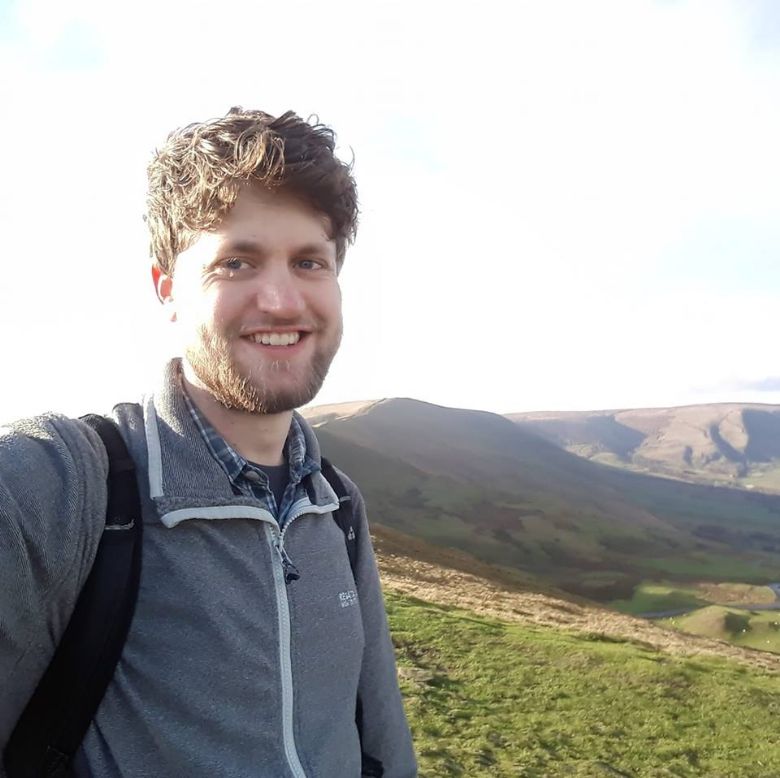
Environmental Scientist
Higher Education Subject and University:
BSc Environmental Earth Science (2012-2016) and MSc Environmental Monitoring and Analysis (2015-2016) (both at Aberystwyth University)
Current Job:
PhD Student at the University of Manchester
Brief Career History:
Achieved a 2:1 in my BSc and a Distinction in my MSc. Worked as a Laboratory Analyst from 2016 to 2018. Started my PhD in September 2018 and expect to complete in March 2022.
What do you love about your job:
The freedom to pursue my interests, to work with distinguished scientists, to learn advanced skills and techniques and to travel (for fieldwork and conferences).
What three pieces of advice would you give someone thinking of a career in Environmental Science:
- Get your driving licence ASAP! Most jobs in the environmental sector require one for fieldwork so I can't state this enough. I left learning to drive until quite late and as a result I was locked-out of many jobs for which I was otherwise fully qualified for. Friends of mine who were less academically qualified than me (i.e. had a weaker BSc and didn't do an MSc) but already had a driving licence, didn't have this problem. Also its easier to learn when your younger, so even if you're not planning to get a car until after university, I would still strongly advise learning at age 17-18 if possible.
- Look up summer-internship and year-in-industry placements offered by environmental and geo-technical consultancy companies. Having this kind of work experience will significantly help you in the job market post-graduation. The company may even offer you a job to go straight into after you graduate.
- If you have the opportunity to spend a semester or a year abroad - take it! This is something I deeply regret not doing and I would advise this to all students applying to university for any subject.
How did St Benedict’s help you into your present role:
As someone on the autistic spectrum (mild Asperger's Syndrome) the support offered to me at St Benedicts was very important. This came in the form of in-class learning support assistants and a good system in place which could identify and implement my exam requirements.
Favourite memory from your time at St Benedict’s:
This would be my sixth form years. In A-level Geography and History I learnt so much about the world we live in and this not only helped me in further studies but also made me a well-informed citizen. For example, one of my A-Level History units was on "British political and economic history 1945-2007" - though this is not so relevant to environmental sciences, what I learned in this unit significantly (still!) helps me understand current affairs.
Three words to sum up an average working day:
Varied, challenging, stimulating.
Senior Research Scientist, Biologicals R&D at Sygenta
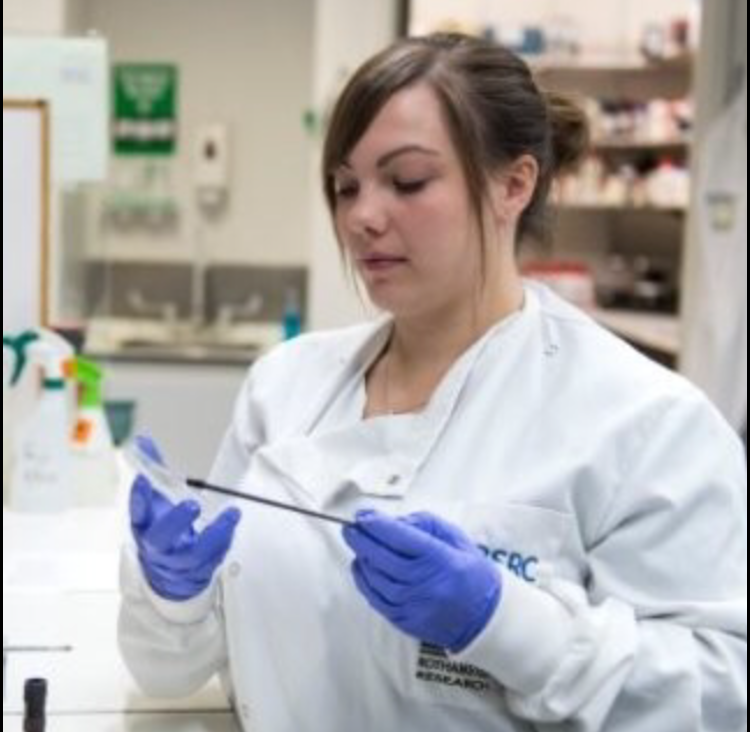
Senior Research Scientist, Biologicals R&D at Sygenta
Higher Education Subject and University:
PhD Molecular Microbiology from University of Reading/Rothamsted Research (2012-2016)
MSc Ecology & Evolution from Imperial College London (2011-2012)
BSc (Hons) Zoology from Anglia Ruskin University (2007-2010)
Current Job:
Senior Research Scientist, Biologicals R&D at Syngenta
Brief Career History:
I achieved a 2.1 in Zoology in 2007 and had a gap year working full time as a dispenser to fund my MSc. I achieved a Merit in my MSc in 2012 and started my PhD straight afterwards. As soon as I finished my PhD in 2016, I started my role at Syngenta.
What do you love about your job:
I love the varied nature of my job. I’m always doing something different. Biological products in agriculture is an up and coming area and it’s exciting to work on something new. I’m discovering new things which could end up being used by farmers all over the world. We also use automation a lot in the lab, so I get to use robots to carry out some of my experiments, I’m constantly learning new things and skills.
What three pieces of advice would you give someone thinking of a career as a Research Scientist:
- Say yes to new opportunities as you can learn new skills which may be useful in the future
- Network as much as possible as project teams are always multidisciplinary
- There’s no such thing as a stupid question, ask!
How did St Benedict’s help you into your present role:
St Benedict’s allowed me to study the science A-levels and GCSEs which allowed me to attend university. The science department in particular has some amazing teachers.
Favourite memory from your time at St Benedict’s:
I loved sixth form, spending break and lunch times in the common room with my friends. Sixth form parties were always fun too!
Three words to sum up an average working day:
Challenging, varied, technical
Professor, Head of Medical Education
Professor, Head of Medical Education - Warwick Medical School
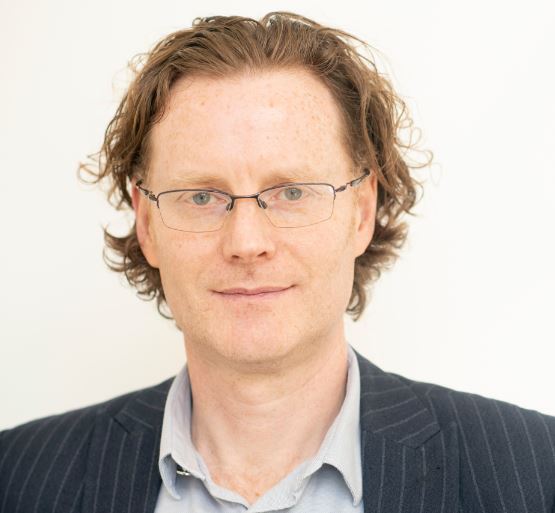
Higher Education Subject and University:
Newcastle (University of Newcastle upon Tyne at the time – now changed to just Newcastle!) - Medicine
Current Job:
Professor, Head of Medical Education
Brief Career History:
Aug 1992-Aug 1993 Pre-registration ‘house’ jobs;
Ashington and Newcastle.
Aug 1993 - Jan 1996 General Professional Training; Northern Region Paediatric SHO programme. General & Community Paediatrics, Neonatology and Paediatric Cardiology
Feb 1996 - Feb 2002 Higher Specialist Training; Northern Region Paediatric HST/SpR programme,. General, Community & Neonatal Paediatrics, Paediatric Infectious diseases, allergy, ITU and endocrinology
(Sept 1998-Aug 2000 Education Fellow Sunderland Royal Hospital)
Apr 2002 – July 2010 Leicester Warwick Medical Schools & University Hospitals Coventry and Warwickshire NHS Trust. Senior Clinical Lecturer in Medical Education and Honorary Consultant Paediatrician.
Aug 2010 – Sept 2015 Warwick Medical School & University Hospitals Coventry and Warwickshire NHS Trust. Deputy Head, Warwick MBChB, Warwick Medical School. Academic Lead for Learning and Teaching.
Sept 2015 - Warwick Medical School & University Hospitals Coventry and Warwickshire NHS Trust. Professor (Professorial Clinical Teaching Fellow until Sept 2018) and Honorary Consultant Paediatrician. Head of Medical Education, Warwick Medical School.
What do you love about your job:
Seeing enthusiastic new graduates succeed on their journey to becoming the next generation of doctors!
What three pieces of advice would you give someone thinking of a career in medicine:
- Don’t be too fixed in your planning – I set off to be a clinical doctor and now am mostly an educationalist!
- Do stuff you enjoy – I love being a doctor but I also love teaching – and started doing more and more (mainly for fun)… and it became my career!
- Remember that everything you do (whether it is direct care, training others or whatever) should be about how it will benefit patients
How did St Benedict’s help you into your present role:
St Benedict’s gave me the opportunity to learn and get the grades I needed – but never ‘hot housed’ me. If I was focused and wanting to work, there was all the support I needed, but the motivation had (rightly) to come from me. Learning was about me and what I wanted from it and not about what others wanted or how it would look for the school.
Favourite memory from your time at St Benedict’s:
Some of my A level Chemistry was more ‘explosive’ than was perhaps intended, or would probably be allowed today!
Three words to sum up an average working day:
Complex, Busy, Rewarding
Diagnostic Radiographer
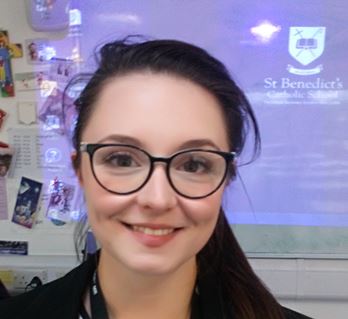
Diagnostic Radiographer
Higher Education Subject and University:
BSc (Hons) Diagnostic Radiography from University of Suffolk
Current Job:
Diagnostic Radiographer - Addenbrookes Hospital
Brief Career History:
I worked a part time general assistant job for Sainsbury’s during my education before qualifying as a radiographer, which is what I have been doing since. I have very recently accepted a job in MRI, which is what I will be training to do next.
What do you love about your job:
My job has a lot of variety, a radiographer works in several areas including but not limited to A&E, theatre, and outpatients settings. The scope for development is immense should there be a desire to specialise in a particular area, such as MRI, CT and nuclear medicine. We are at the cutting edge of technology and medical imaging is invaluable to the pathways of most if not all patients that attend hospital.
What three pieces of advice would you give someone thinking of a career as a Diagnostic Radiographer:
Decide which type of radiographer you want to be, therapeutic or diagnostic. Whilst sharing the same title, they are very different disciplines requiring specific sets of skills.
Anything is possible- anyone of all ages and levels of experience join radiography courses. Whether you decide to do this now or after you’ve done something else, radiography does not discriminate.
Never give up, don’t doubt yourself and keep going! - the radiography degree is mentally and physically exhausting, and a totally different discipline to other degrees. It will all be worth it in the end once you are fully qualified and performing your own imaging!
How did St Benedict’s help you into your present role:
I attended St Benedict’s from when I was 12 - 18. This time is some of the most influential in a young person’s life. I grew up at St Benedict’s, and St Benedict’s helped shape who I am today, still using the morals and values instilled in me from year 9. There is no one specific thing I can say St Benedict’s did to make me who I am today, but the ethos of the school and what we stood for has definitely benefitted me in my life so far.
Favourite memory from your time at St Benedict’s:
My favourite memories are of the school music concerts led by Mr Berridge (then Head of Music). Whether musically inclined or not, young people are capable of delivering some amazing performances. The school concerts were times when status, popularity and grades did not matter. Everyone came together and delivered something special for all our loved ones to see. That is what music is all about.
Three words to sum up an average working day:
It’s hard to choose 3 words that sum up an average day at work as it always changes. But I can provide three important values.
Always be kind to whomever you meet in hospital, you never know what anyone is going through.
Aim for perfection, as that image could change someone’s life.
Be thankful, as everyday (whether you know it or not) you are making a difference.
Solicitor - Property Law
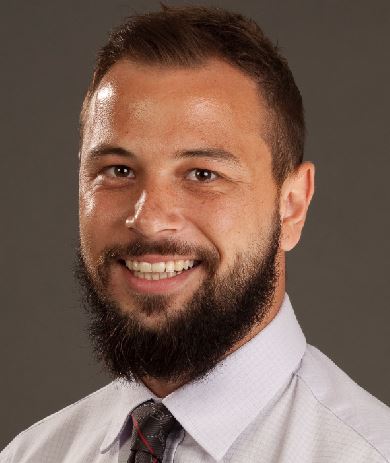
Solicitor - Property Law
Higher Education Subject and University:
Nottingham Trent University – LL.B Law Degree / Nottingham Law School – Legal Practice Course.
Current Job:
Solicitor, specialising in residential property, commercial property, and corporate acquisitions.
Brief Career History:
I graduated with a 2:1 in my LL.B Law degree. After leaving Nottingham Law School with my LPC (Commendation), I started work at a law firm in Market Harborough that specialise in residential property transactions. From there, I moved to Rudlings Wakelam Solicitors in Bury St. Edmunds where I became a Trainee Solicitor and qualified as a Solicitor with the firm. I now work for Fairhurst Menuhin Solicitors, based in Newmarket and Haverhill specialising in residential property, commercial property and corporate acquisitions.
What do you love about your job:
A vast client-base varying from first-time buyers of a residential property, to commercial clients leasing shops in the high street, to Directors of a successful business looking to sell their business or acquire new businesses. No two days are the same, and I am constantly learning and testing myself. I am constantly networking with fellow professionals and learning from experienced solicitors.
What three pieces of advice would you give someone thinking of a career as a Solicitor:
-
Try to get as much work experience as possible – most people will come away with a 2:1 Degree or higher, and a Commendation or higher on the LPC. You need to separate yourself from the rest by volunteering your time to experience how law firms operate in practice
-
Work hard, but maintain a good work / social life balance. A successful solicitor is a well-rounded individual that is good with a wide variety of clients with different needs.
-
Understand that there will be difficult days – there will always be something you don’t know. Don’t be afraid to ask someone with more experience.
How did St Benedict’s help you into your present role:
My time at St. Benedict’s was very important to me. Sixth form was the starting point in taking control of my own time and diary. This is particularly important when heading to University. The variety of sports that the school offers is beneficial as participating in sports at University is a great way of making friends.
Favourite memory from your time at St Benedict’s:
Captaining the school football team, before being called up to represent both West Suffolk and Suffolk county level at football. It was from this that I was called up in to Tottenham academy.
Three words to sum up an average working day:
Varied, Rewarding, Stimulating.
Senior Design Engineer

Senior Design Engineer
Higher Education Subject and University/Apprenticeship:
BA (Hons) Interior Architecture and Design - 2:1 University of Essex
Training provided by employer:
ILM Level 3 certificate in management - city & guilds Level 2 in Power Engineering - IOSH managing safely - EngTech accreditation with IGEM
Current Job:
Senior Design Engineer (Responsible for the Design of Multi-Utility Infrastructure)
Brief Career History:
After finishing University, I started out in an entry level CAD technician role. Within a year of joining I progressed into a Multi-Utility Planning Engineer position. I then progressed to a Design Engineer, Design Engineer Lead and to Senior Design Engineer within the following 5 years. I am now responsible for a team of Planning and Design Engineers and am responsible for the team and workload management.
What do you love about your job?
- The People! - I love that I have the opportunity to have my own team and am mainly driven by being able to develop them and help them to achieve their career goals.
- Freedom! - I am now in a position where I am able to manage my own workload and that of the team. I have the freedom to initiate changes within the department, from implementing new processes to making cases for additional staff within our team.
- The Challenge! - I love problem solving, this is a great job because no two designs are ever the same, the work pushes you to problem solve and partner your creativity with your technical knowledge.
What three pieces of advice would you give someone thinking of a career as a Design Engineer?
- Believe in yourself and in doing so, never be afraid to SPEAK UP, ask questions and share your ideas! As long as you do this in a polite and professional manner, this shows that you are engaged and invested in the workplace and is a huge thing employees look for.
- LISTEN to others. You will be surrounded by so much knowledge and it’s important to really listen to what other people are saying, this is also key to being listened to yourself.
- DO NOT FEAR FAILURE - Always remember that everyone who has ever achieved anything has also Failed many times over. It’s nothing to be ashamed of because it shows that you tried, you will learn lessons from your failures and I promise you that nobody will ever judge you for them (as much as it might feel like it). This is key when going for any job and is important in a career where thinking outside the box and coming up with new solutions is required.
How did St Benedict’s help you into your present role?
The respect for others, self-awareness and discipline that you are taught here will help you to succeed more than you realise. At this school we all just take it as normal ways of behaving but I honestly think this is something that unfortunately isn’t normal any more. This simple way or behaving and having respect for others comes across straight away to employers, it can make you stand out in an interview and will make people want to hire you, and want to work with you.
Favourite memory from your time at St Benedict’s?
The Spanish Trip!!
Three words to sum up an average working day:
Creativity, learning, collaboration
Investment Banker
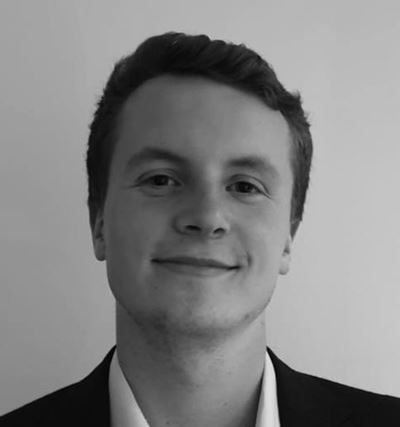
Investment Banker
Higher Education Subject and University:
Royal Holloway University of London, First Class Honours in Business and Management (With Year In Industry)
Current Job:
Investment Banker
Brief Career History:
Part of my course included a year in business which I did at a brokerage firm in London, I then did short internships in other areas of finance, before securing a 6 month internship with an Investment Bank.
What do you love about your job:
The fast paced and stimulating nature of the job as well as working with CEO's of big companies.
What three pieces of advice would you give someone thinking of a career as a investment banking:
- Try and get as much experience as you can
- Network very hard through LinkedIn - find people who may have gone to your school/uni and reach out to them
- Read around regarding the areas in investment banking and the various roles within it (It's not all BUY SELL BUY SELL)
How did St Benedict’s help you into your present role:
It is where I first learnt the value of hard work which has been the main principle in getting my role.
Favourite memory from your time at St Benedict’s:
Hosting the school talent show was a great moment!
Three words to sum up an average working day:
Busy, Stimulating and Exciting
Head of Events & Exhibitions, Department for International Trade - Civil Service
Head of Events & Exhibitions, Department for International Trade - Civil Service

Higher Education Subject and University:
University of Leicester, Geography BSC
Current Job:
Head of Events & Exhibitions, Department for International Trade Defence & Security Organisation
Brief Career History:
Joined the Ministry of Defence as a direct graduate entrant civil servant working on an RAF base in Cambridgeshire as part of an integrated civilian and military team providing supply chain support to two aircraft. This job gave me a fantastic introduction into life as a civil servant and in particular working with service personnel in mixed teams. I was able to make the most of a lot of training opportunities which helped me to focus on a career pathway in the civil service which concentrated on Project Management. After taking a sabbatical to travel to New Zealand and Australia, I moved departments within the MOD working in communications and event project management. This role has evolved over time through departmental changes, and a promotion or two into the role I have today.
What do you love about your job:
I love the variety and high profile nature of my job. Although I have nearly 14 years’ experience in this type of role now, no job is ever the same twice. Coupled with the opportunity to work with Ministers and senior Government officials in the UK and overseas plus VIPs from a variety of countries – my team were responsible for the equipment displays at the NATO Summit held in Wales in 2014. The sense of pride in delivering a job well done on a major event is still hugely fulfilling – and I still really enjoy travelling and experiencing the different cultures of the places we hold events in. Best places I have been to in this job so far… Chile, India and Kazakhstan.
Manufacturing Management, Rolls-Royce
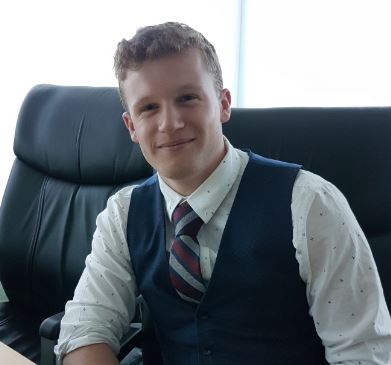
Manufacturing Management, Rolls-Royce Plc
Higher Education Subject and University/Degree Apprenticeship:
Engineering Business Management MSc @ Warwick University
On the Manufacturing Management Sponsored Degree Trainee Scheme at Rolls-Royce
Current Job:
Improvement Leader in Rolls-Royce Crosspointe, Virginia
Brief Career History:
Left school after A-Levels in 2016, worked as a Barista,
I got work experience as a Carbon Fibre Infusion Operator at Vintens in Bury St Edmunds,
Accepted on Manufacturing Management Scheme in Sept 2017,
Since then worked as a Manufacturing Engineer for Defence Development in Bristol,
Worked as an Improvement Leader for Defence Operations in Bristol and then for Defence Procurement in which I was accredited with a Lean Six Sigma Green Belt ,
After that I worked as a Manufacturing Services Leader
Until I moved over to America to work as an Improvement Leader again.
What do you love about your job:
The product we produce is incredible, pushing the boundaries of engineering.
The people want to see you succeed and give you every opportunity to do so.
What three pieces of advice would you give someone thinking of a career as a Manufacturing Manager:
- Develop an appreciation for Engineering; however you do not need to be an engineer.
- Focus on developing Leadership Skills and your Emotional Intelligence.
- Look into Degree Apprenticeships, find out what is out there and that there’s ways of getting a degree without the debt.
How did St Benedict’s help you into your present role:
Leading School Council helped to develop my leadership and organisational skills.
Going through GCSE’s and A Levels you begin to understand what motivates you and you can take that into any starting role in any company.
I’ve got support through the group of friends that I gained in Bennies and we still support and drive each other now.
Favourite memory from your time at St Benedict’s:
Hosting the talent show in 2015
Three words to sum up an average working day:
Improvement, Engineering, Operations,
Corporate Treasurer
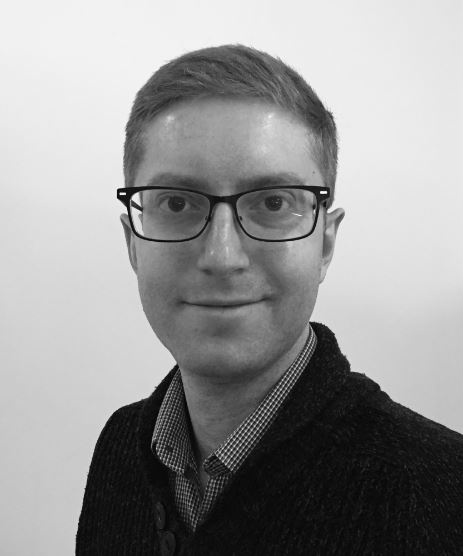
Treasury Finance Manager at Greene King
Higher Education Subject and University:
BA Economics, University of Cambridge
Current Profession:
Corporate Treasurer
Brief Career History:
In the summer before my final year of university I completed an internship at Credit Suisse, an investment bank, and was subsequently offered a position on their graduate program. After graduating in 2014 I worked in London for three years in Credit Suisse’s finance department, primarily in roles focussed on accounting and financial control for the bank’s Structured Credit trading business. In 2017 I moved to Greene King where I now work as a corporate treasurer, with a particular focus on the development and delivery of the company’s financing strategy.
What do you love about your job:
It’s very intellectually stimulating and incredibly varied – there’s never a dull moment when you’re working in treasury! I like that I’m able to work on projects of very high strategic importance for the company; it’s a job with a lot of responsibility and it’s really rewarding to see my work generating tangible and quantifiable benefits for the company as a whole. It’s also a job that involves working with lots of very talented people. On a day to day basis I interact with bankers, financial advisors, lawyers, rating agencies and auditors, as well as a wide range of colleagues internally.
What three pieces of advice would you give someone thinking of a career as a Corporate Treasurer:
- Keep up to date with current affairs and political/economic developments. Treasurers play a key role in shaping business strategy and managing risk, so having a good understanding of external factors which impact businesses and generate risk or uncertainty for them is important.
-
Develop an understanding of financial markets. It’s useful to have some knowledge of the way the market works, the key market participants, and the financial instruments used by corporates to raise funding and manage financial risk.
-
Consider training as an accountant first – but never lose sight of the importance of cash. Corporate treasury can be a difficult profession to get into straight out of school or university and many treasurers start their careers in accounting before moving into treasury at a later stage. Although they are separate disciplines, working in accounting allows you to develop skills which are very transferrable to the treasury profession. Just be careful not to fall into the trap that some accountants fall into of thinking only in terms of profit and never in terms of cash, as the two can be very different and as a treasurer the latter is far more important. In business, it is often said that turnover is vanity, profit is sanity, but cash is reality!
How did St Benedict’s help you into your present role:
During my time at St Benedict’s I began to learn the importance of thinking critically and independently about issues, rather than just regurgitating information from a textbook. I had some great teachers who encouraged me to develop a really deep understanding of the subject at hand, rather than just teaching me how to pass the exams. This mindset was developed further while I was at university. As a treasurer my work hardly ever involves carrying out pre-defined processes, and the problems I’m called upon to help solve rarely have textbook solutions. As a result, it’s important to be able to think carefully about issues and draw upon all your accumulated knowledge and experience to make good decisions and come up with innovative solutions to problems.
Favourite memory from your time at St Benedict’s:
Countless impromptu debates with my sociology teacher on political and economic issues. We had very different political ideologies which always made for interesting discussions!
Three words to sum up an average working day:
Dynamic, strategic and varied.
Physiotherapist
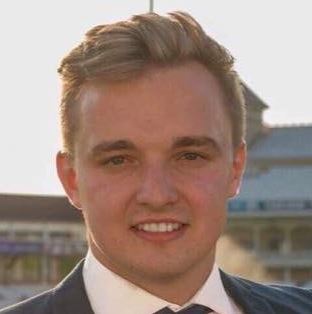
Physiotherapist
Higher Education Subject and University:
BSc Physiotherapy, The University of Nottingham
Current Profession:
Physiotherapist
Brief Career History:
Achieved a First Class Honours in my Physiotherapy degree which included assessments on theoretical and practical elements. My course had several clinical placements incorporated into the three years which gave me a variety of exposure to the work of a Physiotherapist. I recently started my first job working as a Physiotherapist on the vascular surgery ward at Royal Derby Hospital. My role is rotational so I will work in a variety of settings in the NHS Trust as a junior.
What do you love about your job:
Being able to help patients work towards their goals and aspirations. Working for the NHS makes me feel very proud!
What three pieces of advice would you give someone thinking of a career as a Corporate Treasurer:
- Commonly people think you need to study A-Level Biology to apply for a Physiotherapy course. Wrong - most universities will accept PE or Biology and often prefer the student to study PE anyway!
- Do your research. Physios definitely don’t just massage people! All physiotherapy courses will require some work experience prior to applying. It’s a good idea to get a wide range of experiences if you can, especially within the NHS.
- Don’t expect to work in private practice or a sports team straight away. The majority of physios work in the NHS, especially early on in their careers. There’s a big drive for physiotherapy in the NHS as there is an ageing population with complex needs
How did St Benedict’s help you into your present role:
At the time I was at St Benedicts the school had brilliant connections with County Upper which allowed me to study PE at "A" level whilst remaining at St Benedicts. Without this opportunity i wouldn't be where i am today!
Favourite memory from your time at St Benedict’s:
Playing football at lunchtimes with friends and playing for the school team!
Three words to sum up an average working day:
Busy, active and varied.
Investment Consultant
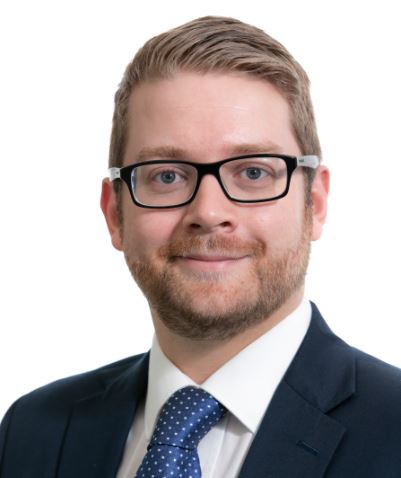
Investment Consultant
Higher Education Subject and University:
BSc Economics, University of Birmingham
Current Job:
Investment Consultant
Brief Career History:
Following two summers working at a local Independent Financial Advisors during university, I gained a graduate position at Towers Watson (as it was then known) within the investment consulting team in 2012. My role primarily focused on supporting the provision of investment advice to pension schemes. Despite no formal career changes, my role has developed on an ongoing basis, including increasing the analytical nature of my role, taking on a wider and more complex range of clients, and proving the advice myself rather than supporting others to provide it.
Alongside this role I have also recently been appointed as a Trustee for the Peter Minet Trust, a small grant-giving foundation based in South London.
What do you love about your job:
Throughout my career, a key motivation has been to take opportunities that combine problem solving and helping people – and working in an industry such as pensions provides exactly that opportunity. The majority of my role is problem solving – how to balance the competing constraints on investment portfolios, which strategy works better in which portfolio, how to explain complex concepts to trustees without scaring them into inaction. Ultimately, the beneficiaries of our work are normal everyday people who are members of the pension schemes we work with, and it is great to know that the work we are doing helps to secure the long-term financial stability of these people.
On the softer side, it is fantastic working with so many intelligent, motivated and down to earth people, and working outside of London also has it’s perks, like the 10 minute commute to work every day!
What three pieces of advice would you give someone thinking of a career as an investment consultant:
- Understand the industry. Who our clients are, how they work with us, and the types of challenges the industry faces. Knowing what the role of an investment consultant doesn’t involve is as important as knowing what it does. The world I work in is rapidly changing, from the wider adoption of delegation within the investment consulting industry to the increasing number of pension schemes who will soon be in a position to secure their members benefits using very low risk investments. Understanding these dynamics is a fantastic first step towards success.
- Be prepared to learn. My role came with (and continues to have) a very steep learning curve which never seems to stop. Not only do I deal with a lot of difficult concepts, but these concepts continually change and evolve as our clients face new problems.
- Develop your people skills as well as your technical skills. Having good technical skills is important but can only take you so far. Being able to work well with people, firstly your colleagues, then your clients, is a key skill to have as well.
How did St Benedict’s help you into your present role:
My time at St Benedict’s armed me with a number of the key tools I’ve utilised throughout my career. Most important was the culture of critical thinking and problem solving, not only understanding what to do, but also why to do it, and how to apply it in other situations. This has been a crucial element of both my degree and my present role.
Another key benefit is learning the importance of working both hard and efficiently. Particularly during my GSCE and A-Level years, my teachers impressed the importance of spending my time on the activities that would have the most benefit to my progress. In my present role, working hard is an expectation, and without working efficiently things can run out of control.
Favourite memory from your time at St Benedict’s:
Receiving my A-level results was a fantastic day and a memory that will stay with me forever, and really justified all the hard work I’d put in over the years. Being able to celebrate with my friends made it even better.
Three words to sum up an average working day:
Focussed, analytical, collaborative.
Self Employed International Private Tutor
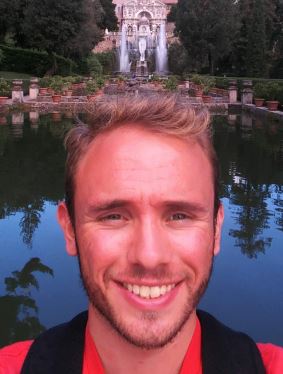
Self Employed International Private Tutor
Higher Education Subject and University:
Biomedical Science specialising in Experimental Cardiovascular Pharmacology - Kings College London
Teach First Secondary Science Teacher Training - Canterbury Christchurch.
Current Job:
Self-employed International Private Tutor.
Brief Career History:
Tutoring and teaching is something I picked up at University. I worked for a series of agencies, teaching Science and Maths, earning money to pay for an extravagant student London lifestyle. I found an affinity for teaching and working with young adults, and set up my own tutoring business fresh out of University. After two years, I went on to the Teach First Leadership programme and taught for two years as a Science and Maths Teacher.
Through the contacts I made over the years, and a little bit of marketing, I set up a new enterprise, tutoring foreign and international students - preparing them for Entrance Examinations into British Boarding Schools. This is my current job and has literally taken me all over the world! To name a few of my destinations: South Africa, Italy, Turkey, Saudia Arabia and Malaysia.
What do you love about your job:
I honestly feel this is the best way to teach students. Spending time, teaching one to one, allows so much progress to be made. I take immense satisfaction in seeing students tackle a subject that has previously seemed difficult to them, and watch as my students have those "lightbulb moments" that teachers often speak about.
Living in a new city opens your eyes to different cultures and attitudes. I feel very lucky to have been able to live in places like Rome and Johannesburg and get to integrate with local people over a sustained period of time. Rather than visiting a place, I am living there and I have made several life long friends in the process.
A good wage and having all my living expenses covered creates a rather healthy looking bank balance...
What three pieces of advice would you give someone thinking of a career as an investment consultant:
- You need an abundance of patience when tutoring.
- You need to know your subject very well! I am passionate about Science and Maths and I've been told that enthusiasm comes through in my lessons. If you have fun in your lessons, then your students will!
- You need to be confident and not afraid of entering into new situations. I've had a lot of unique experiences in my working life, none of which would have been possible if I had let fears and doubts take over.
How did St Benedict’s help you into your present role:
With some memorable teachers, I picked up on the enthusiasm they had for their own subjects. I wanted to be able to deliver interesting insights into a subject I knew well and get my students interested in Science and Maths.
Favourite memory from your time at St Benedict’s:
Playing Lysander in the school production of Midsummer Nights Dream.
Three words to sum up an average working day:
Confident. Engaging. Empathetic
Flight Test Engineer - QinetiQ, embedded in 206 Test Squadron (RAF)
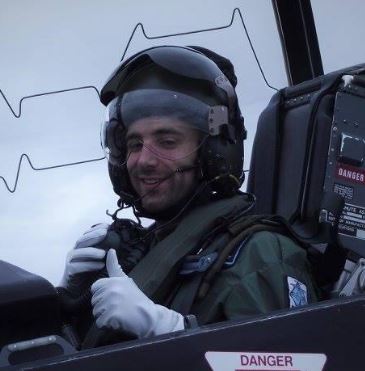
Flight Test Engineer - QinetiQ, embedded in 206 Test Squadron (RAF)
Higher Education Subject and University:
University of Leicester: BEng Aerospace Engineering
Cranfield University: MSc Aerospace Vehicle Design
Empire Test Pilots’ School: No 42 Flight Test Engineer Course
Current Job:
Flight Test Engineer - QinetiQ, embedded in 206 Test Squadron (RAF)
Brief Career History:
2014 - I joined QinetiQ in 2014 on a graduate scheme as a flight physics engineer, after finishing a BEng and MSc in Aerospace Engineering. I had multiple placements over two years to explore the company and it was during this time I worked on my first flight trials and had my first dose of flying (in a fighter jet!).
2017 - After the graduate scheme I started work in helicopter flight testing and was selected as a flight test observer, my first airborne role. I worked primarily on testing how well Royal Navy helicopters could land on new ships, which involved going to sea for weeks at a time!
2018 - I then applied and was accepted into the Empire Test Pilots’ School, which taught me how to lead experimental and high-risk flight tests. This year-long course involved some very hard work coupled to some very exciting flying, in everything from basic trainers to state of the art military aircraft. On graduation I was granted the title of Flight Test Engineer.
2019 - Shortly after Test Pilot School I got the opportunity to join an RAF test squadron, the only civilian there! Here I lead teams on the front line of military aircraft testing to push limits and generate more capable aircraft for the RAF. I expect to be here for at least another few years.
What do you love about your job:
I can now actually get in trouble for not flying enough, and there are still plenty of “pinch yourself” moments. It’s also very rewarding to see the results of our hard work get to front line pilots, hopefully giving them safer and more effective aircraft.
What three pieces of advice would you give someone thinking of a career in flight test:
- It’s about who you know. For better or worse, networking is very important for finding opportunities. The flight test community is small, get your face out there as somebody good to work with. It’s amazing what can come your way if people know who you are and what you want...or what you can do for them!
- Be flexible and open to new opportunities. It’s good to have a plan for your career in order to send you off in the right direction, but don’t be afraid to take some detours on the way. Trust me, you have time. You never know what you might find, but don’t simply chase the highest salary.
- Get that healthy work life balance nailed as soon as you can, nobody will thank you for working yourself into the ground. There are times when you will have to work harder for longer hours than is reasonable, the trick is to ensure this is the exception and not the rule. You will be happier and healthier for it if you also have a life outside of work!
How did St Benedict’s help you into your present role:
By providing us with teachers more than willing to go the extra mile to help, whether that was extra revision sessions or practice interviews to get ready for university selection days. At university you realise just how good your school teachers were at actually teaching, so make the most of it!
Favourite memory from your time at St Benedict’s:
The whole of sixth form, especially our ‘socials’.
Three words to sum up an average working day:
Plan, Execute, Analyse.
Junior Doctor
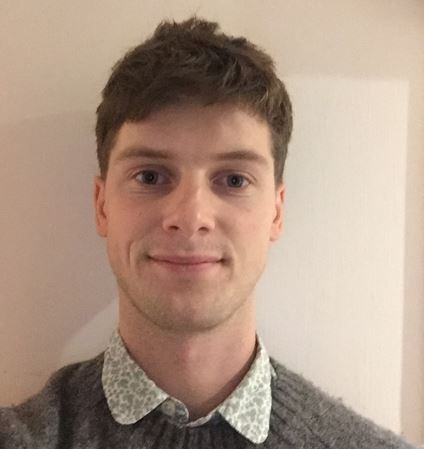
Junior Doctor - Addenbrookes Hospital
Higher Education Subject and University:
Oxford (for 3years Pre-clinical)
Kings College London (for 3 years clinical medicine)
Current Job:
Junior Doctor - Addenbrookes Hospital
Brief Career History:
Foundation year one - Royal Sussex County Hospital Brighton: Rotations - general surgery, ENT, Respiratory medicine
Foundation year two - Royal Sussex County Hospital Brighton - Rotations: A&E, academic research (medical education), to be confirmed.
Next steps - i'm still undecided as to which specialty I would like to train towards!
What do you love about your job:
Amazing opportunity to help patients and really get to know people of all walks of life and to make meaningful positive impacts on peoples lives. I work in great teams surrounded by lots of motivated people, continued learning and development (unfortunately that does mean having to continue to do exams throughout the career though).
What three pieces of advice would you give someone thinking of a career as a Doctor:
1) It really is a super fulfilling job that you won't get bored of.
2) there are so many different jobs within the title 'doctor' - there'll definitely be something for you
3) Team work is really important
How did St Benedict’s help you into your present role:
St Benedict's help me to get the A-levels and GCSEs I needed to get into medical school, they also had helpful lunchtime sessions to prepare for my interviews in Oxford. The school helped to instil principles such the importance of self-directed learning that have been and continue to be so valuable in my career and training so far. It was also a great place to make some life long friends that have come in very handy when I've needed a chance to relax after a hard days work!
Favourite memory from your time at St Benedict’s:
Playing football every lunch time and break!
Three words to sum up an average working day:
Stressful, exciting, a privilege.
Category Manager BIC UK & Ireland
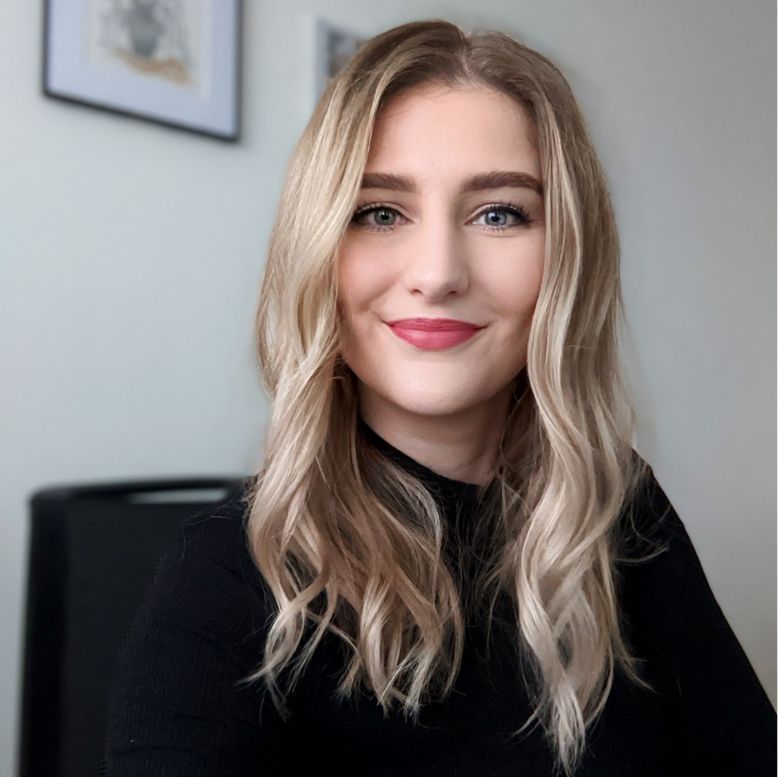
Category Manager BIC UK & Ireland
Higher Education Subject and University:
Business & Management (BaHons), Leeds Beckett University
Current Job:
Category Manager, BIC UK & Ireland
Brief Career History:
I worked in retail/hospitality between the ages of 16-22 – liked to have financial independence.
After uni I started my career off as a Sales Executive at Hamelin Brands (you may recognise one of their brands Oxford Campus notebooks), then I quickly realised that the sales world was not for me and I started getting involved in other departments and assisting in various projects.
This led me to take on an internal position when a Trade Marketing & Category Assistant opportunity came up – it became clear to me that category management is what I wanted to pursue as my career.
After about a year, I landed a job at BIC as a Category Executive and relocated to London. I worked hard, stayed curious and ambitious and was rewarded with a promotion after less than a year, to Category Manager.
What do you love about your job:
I work daily with both the sales and marketing departments, so I get to enjoy both sides. 50% of my work involves using Excel (there is a lot of data analysis day-to-day, whether it is market, shopper or sales data), which satisfies my inner geek. The other 50% is making the data look pretty (impactful), in a nutshell, by building PowerPoint presentations, this satisfies my creative side.
I also get to be a bit of an influencer by giving the retailers direction on what to put on their shelves in stores and within the BIC business on creating an effective strategy – it’s an amazing feeling when they listen, and it works!
What three pieces of advice would you give someone thinking of a career as a Category Manager.
Firstly, I wasn’t aware that category management even existed 4 years ago! Which is why it’s really important to ask questions & try things – whatever you end up pursuing, early on in your career you need to say ‘yes’ to new opportunities, projects or tasks, even if they are outside of your job description.
- Be open and curious – you don’t know, what you don’t know. This also reinforces the point I made earlier; I would not be where I am now if I weren’t open & curious. My main responsibility is to provide insight-based, data-driven recommendations that impact both retailer and internal business decisions. I have to be curious to dig into data, read various reports and articles, ask questions and be able to answer them.
- Can do attitude & ambition – especially important early on when you haven’t had a chance to gain specific experience yet (that’s in any job). These are the things that employers value, because you can pick up the role specific skills later on. Remember to also continuously develop your skills like Excel, data analysis, PowerPoint which are extremely helpful in a Category Management role - there are plenty of YouTube videos, webinars and free online resources to help with this.
- Work on your people skills & network - as a category manager I work across different departments, countries (cultures) and with various retailers. I am the ‘go to’ person when it comes to making data driven decisions. In order to effectively influence others and become that trusty ‘go to’ person, it’s key to build a rapport and credibility with those you work with. Networking with others in a similar role across different industries opens up great discussions, allows you to discover different ways of working, thinking and develops your knowledge.
How did St Benedict’s help you into your present role:
I can’t think of a specific thing that would relate to my current role. However, I came to the UK in year 8 with very basic English, started St Benedict’s in year 9. The school quickly recognised that I worked hard, and a language barrier is not a learning barrier – this taught me early on that hard work pays off, which is still something I live by to this day.
Favourite memory from your time at St Benedict’s:
Teachers making fools of themselves in talent shows, of course!
I really enjoyed the creative subjects at school (apart from drama because I was extremely shy and anxious to speak in front of an audience). I used to play the flute and loved music & art lessons because I felt confident in those.
Three words to sum up an average working day:
Differentiated, creative, empowering
Commercial Graduate, Philips Electronics
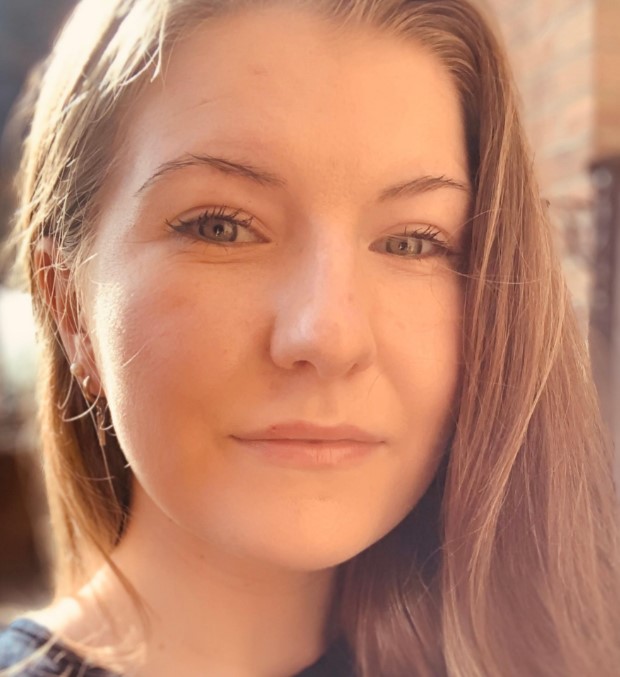
Commercial Graduate, Philips Electronics
Higher Education Subject and University:
University of Nottingham, Psychology and Philosophy
Current Job:
Commercial Graduate, Philips Electronics
Brief Career History:
I graduated from university in 2020 with a 2:1 in Psychology and Philosophy. Whilst at university, I worked part-time as a retail supervisor, and before that, a lifeguard and Duty Manager at a local sports centre.
After graduating, I started working for Philips Electronics in October 2020 as a Commercial Graduate Trainee. My main role is working in business marketing and sales in the Precision Diagnosis business of Philips. This involves marketing and selling healthcare equipment such as MRI, CT and Ultrasound scanners, and any equipment involved in patient diagnosis.
What do you love about your job?
I love the variety and pace of the job.
I also love that because I am on a graduate programme, I am always being pushed out of my comfort zone to try new projects and learn new skills.
What three pieces of advice would you give someone thinking of a career in Business Marketing and Sales (Commercial)
- Try and get any work experience you can. Any experience is valuable, even if you don't think it is at the time.
- Read the business section of newspapers, news sites etc. Always good to get an understanding of how different businesses work.
- Be confident! Part of working in a commercial function is working with customers and developing new ideas, this requires confidence and good communication skills.
How did St Benedict’s help you into your present role?
St. Benedict's helped me to work out what I wanted to do as a future career. Teachers were always encouraging and helped me research where my skills would be suited.
Favourite memory from your time at St Benedict’s?
The annual talent show! Was always a lot of fun
Three words to sum up an average working day:
Varied, rewarding and challenging
Research Analyst, International Finance & Macroeconomics, The Milken Institute
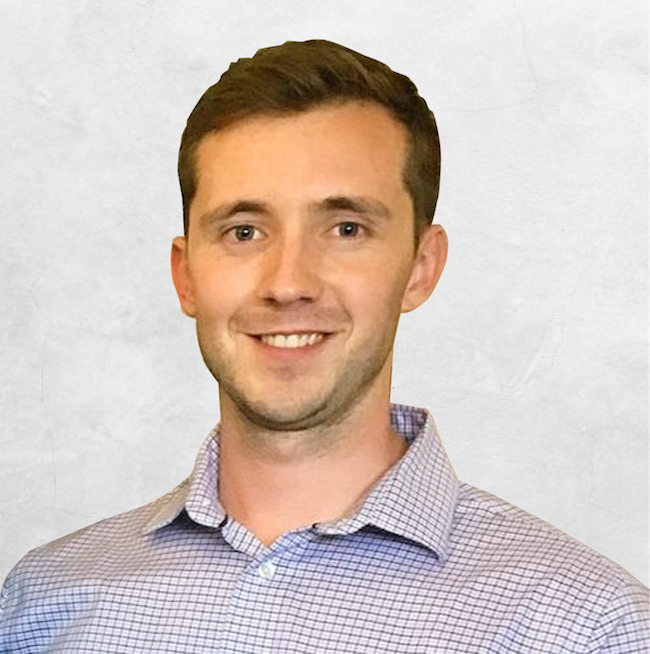
Research Analyst
Higher Education Subject and University:
BA American Studies - Keele University
MA Political Science - Colorado State University
Current Job:
Research Analyst, International Finance & Macroeconomics, The Milken Institute
Brief Career History:
During my master’s program I worked with several think tanks in the U.S. and Canada on policy issues related to international trade, and wrote articles on U.S. economic policy for an international affairs magazine headquartered in Washington D.C. In 2019 I began my current role at the Milken Institute located in Santa Monica, CA where I work on the research team. Specifically, I conduct research on issues impacting global financial markets and propose solutions for both public and private sector decision-makers.
What do you love about your job?
- I'm always learning/growing. As a researcher, a central part of my job is to keep accumulating information on the subject matter. This means I spend several hours every day reading about events & trends impacting financial markets and economies around the world.
- Working at a think tank has added perks. Throughout the year we host conferences that bring together business leaders, academics, government officials, celebrities, athletes and so on to discuss the pressing issues of the time. I was fortunate enough to attend our conference in Abu Dhabi last year and meet a broad range of influential people.
- Living in California is not bad!
What three pieces of advice would you give someone thinking of a career as a Researcher.
- If you're interested in economics/politics/finance keep in mind that quantitative skills will continue to be in high demand.
- Practice being open to opinions different to your own. Echo chambers are comfortable, but rarely reflect reality.
- Being able to communicate effectively (verbally + on paper) is important and like anything else takes practice.
How did St Benedict’s help you into your present role?
In addition to the core principles (critical thinking, positive work ethos, etc.), a lot of the projects I work on now involve using statistical methods, so I feel fortunate to have had an engaging statistics teacher (Mr. Jogee).
Favourite memory from your time at St Benedict’s?
Our year 9 trip to La Fosca, Spain was definitely memorable. I also really enjoyed taking part in the Duke of Edinburgh scheme.
Three words to sum up an average working day:
Collect, reflect, communicate
Senior Environmental Consultant
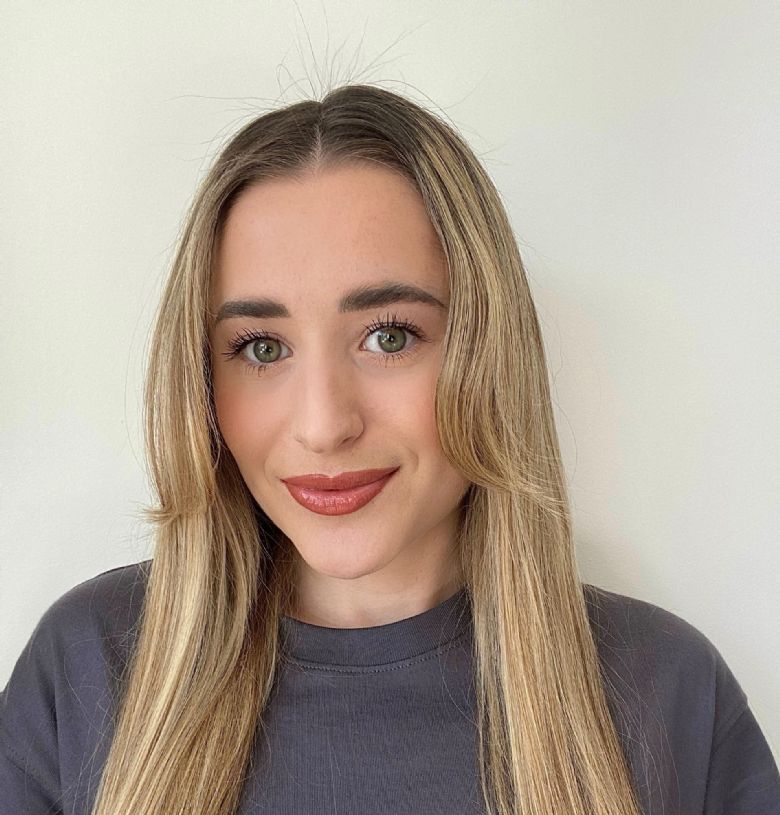
Senior Environmental Consultant
Higher Education Subject and University:
Geography BA(Hons) at University of Liverpool
Currently studying Environmental Modelling MSc at University College London (UCL) alongside my job.
Current Job:
Senior Environmental Consultant
Brief Career History:
After completing my degree, I did not want to get a graduate job straight away as myself and a friend had plans to go inter-railing for 6 weeks around Europe. To accommodate this I worked as a Waitress at The Angel in Lavenham and Retail Advisor and Barista at Javelin.
I joined SRL as an Environmental Technician in July 2018, got promoted to Environmental Consultant in April 2019 and recently got promoted to Senior Environmental Consultant in March 2021. I want to continue gaining experience within the Environmental and Construction Industry within this role and hope to specialise in Environmental Modelling after completing my MSc at UCL in 2022.
What do you love about your job?
I work with brilliant people who are not just colleagues but also friends. They are experts within their field, which continually pushes me to gain more knowledge and progress. Whilst we have offices and people working remotely all over the country (including London, Manchester and Birmingham) we are a close team. The yearly Summer BBQ and Christmas parties are extremely fun with everyone!
I also love working with my clients, every project is different and having meetings and site inspections in different parts of the country keeps it interesting!
What three pieces of advice would you give someone thinking of a career as an Environmental Consultant?
- Develop your time management, communication and leadership skills.
- Be passionate about the environment and environmental change.
- Try and work out what you would want to specialise in, the “environment” is vast! For example, at SRL we specialise in Air Quality, an environmental assessment called “BREEAM”, acoustics, monitoring and testing in our laboratory.
How did St Benedict’s help you into your present role?
All my teachers pushed me to do the best I could and taught me the organisational skills and discipline to achieve my goals. A special mention to Mr Gingell, I definitely do not think I would have got the A Level results I did without him (or attended the University of Liverpool!)
Favourite memory from your time at St Benedict’s?
Definitely the ski trips!
It is inevitable you will not stay in touch with everyone; however, the friends I made will be friends for life! They are all a great support in my life now.
Three words to sum up an average working day:
“You’re on mute!” (pretty relevant throughout Covid remote working)
Serious answer: Design, Communication, Management
Freelance Public Relations Consultant
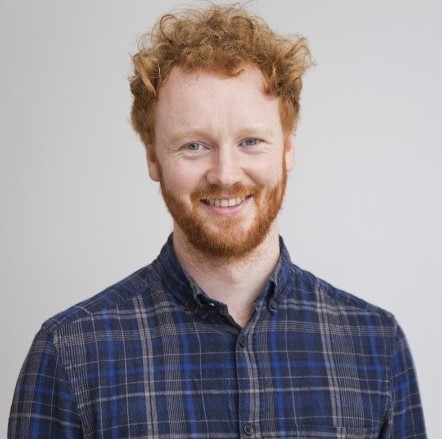
Freelance Public Relations Consultant
Higher Education Subject and University:
Sociology at Newcastle University
Current Job:
Freelance public relations consultant and copywriter
Brief Career History:
I started with a PR internship I managed to secure through a friend whilst also working at a pub in London. After almost a year – and a couple of setbacks looking for a full-time PR role – I moved to a recruitment agency for a year, before heading back into PR for a great company that specialises in B2B Tech. I then moved to a larger consumer agency, before starting my own business in October 2019, where I work with an ex-colleague, essentially running my own one-person agency.
What do you love about your job?
It is very varied – one day I will be writing a 2,000-word piece of creative writing or attending an industry event, and the next I will be trying to lobby government departments or coming up with creative ideas to get clients in the news.
I also get to do a lot of writing, which I have always enjoyed and the topics vary from ‘how to ensure your creativity is shining through on videos’ to topics around cybersecurity, learning and technology.
There are also lots of avenues I can take in the future. I love working for myself as it gives me freedom, but I really enjoyed working in agencies as well as there is a real buzz around them. Longer term, I have not ruled out working in-house for a company, so there are a lot of paths you can take in PR.
What three pieces of advice would you give someone thinking of a career as a Public Relations Consultant?
- Read the news and keep up with current events. This is huge not only for interviewing with companies, but also with your clients. You are a consultant and are expected to be knowledgeable into what is happening in the world, as well as which journalists work where, what they write about.
- Don’t write it off because you don’t think you have the skills. There are so many different facets to my job and naturally areas some people are better at than others. Some people are great writers but aren’t very good at speaking to journalists. I was the opposite but have learned so much on the job.
- Don’t believe the hype. TV programmes like Absolutely Fabulous, Emily In Paris, Mad Men, Parks and Recreation are all loosely related to the PR/Marketing/Advertising world, but in reality, the job isn’t really like it is depicted in these programmes. The boozy lunches and moments of pure inspiration seconds before a meeting are mostly either a thing of the past, fictionalised or over-exaggerated. But, that doesn’t mean PR isn’t a lot of fun.
How did St Benedict’s help you into your present role?
The school was great with me. I had always wanted to be a doctor, so – against the advice of the Head of 6th form at the time – chose to do subjects based around a career (medicine) instead of subjects I really enjoyed. I started out doing Biology, Chemistry, History and Maths at A-Level, but it quickly became clear that these subjects weren’t for me, so I started A-Levels again a few months later with Biology, History, Politics and Sociology.
I carried on doing Sociology at university because it was the subject I enjoyed the most during 6th form, but didn’t really have a career mapped out in front of me. The school was great because they gave me another opportunity after I had made a big mistake with my subjects, but also because I wasn’t put under any pressure to say “this is what I want to do after school”, as I knew I didn’t want to be a sociologist, but just really enjoyed the subject.
The careers guidance was exactly as it sounds – guidance, as opposed to trying to hurry me into a decision. It was helpful in making me realise what my strengths were and giving me a steer, but also accepting that not everybody has a concrete idea of what they want to do for a career.
Favourite memory from your time at St Benedict’s?
Conversations with teachers about cricket probably. One teacher took me out of a lesson on a Monday morning to tell me about his shame of getting an 11-over duck over the weekend, always chatting to Mr Steward about his cricketing weekend, bowling Mr Eeles around his legs in the cricket nets after another “head still, play straight” lecture from him.
Three words to sum up an average working day:
Varied, fun and challenging.
Assistant Sports Editor, MailOnline Sport
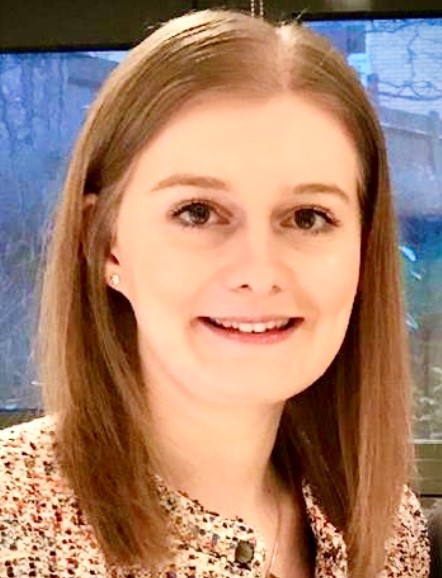
Assistant Sports Editor, MailOnline Sport
Higher Education Subject and University:
The University of Sheffield, BA Journalism
Current Job:
Assistant Sports Editor, MailOnline Sport
Brief Career History:
I joined the Press Association after graduating with First Class Honours. I was responsible for an enhanced news and sports feed which involved subbing stories to appeal to online readers. One of the main feeds was covering the 2016 Rio Olympic Games. In addition to this role, when possible I reported on Premier League and Football League matches to pursue my passion of becoming a sports reporter.
A year later I was given a place on MailOnline’s trainee scheme as a Trainee Sports Reporter. I worked for three months at the Scottish Daily Mail where I filed Scottish Premiership and Championship match reports on the whistle as well as exclusive interviews before being responsible for writing and building stories and features for MailOnline Sport.
After 12 months on the trainee scheme, I became an Online Sports Reporter - responsible for news editing, writing, building and revising stories. After more than two years in that role I was promoted to Assistant Sports Editor which adds leading a team of reporters and page editing to my news editing, writing and subbing responsibilities.
What do you love about your job?
To be able to work in something you’re passionate about is great. Immersing myself in sport 24/7 is a dream job. Also you never know what is going to happen next, no day is the same!
What three pieces of advice would you give someone thinking of a career as Journalist.
Be prepared to work unsociable hours – the news/sport doesn’t stop
Experience is invaluable
Don’t be afraid to ask questions
How did St Benedict’s help you into your present role?
The hardworking and supportive teachers gave me the confidence to be ambitious. While studying for my A-levels I was given the chance to write match reports on school teams as I developed a passion for the industry. The school provided me with vital life skills and gave me a solid foundation to pursue a career in journalism.
Favourite memory from your time at St Benedict’s?
Organising, captaining and playing in various sports teams
Three words to sum up an average working day:
Demanding, unique, enjoyable
Commercial Strategy Lead - Northern Europe, Johnson & Johnson
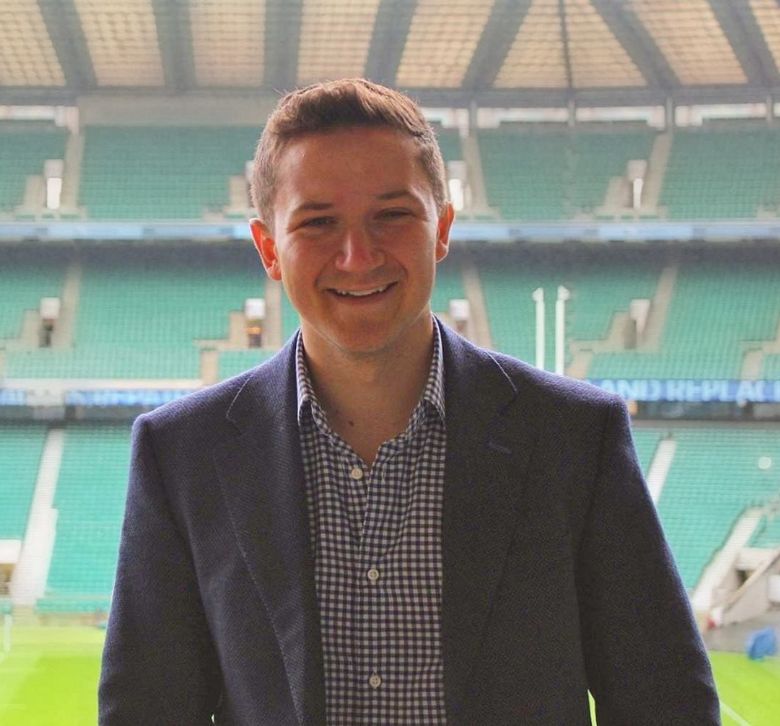
Commercial Strategy Lead - Northern Europe, Johnson & Johnson
Higher Education Subject and University:
History, Exeter University
Current Job:
Commercial Strategy Lead - Northern Europe - Johnson & Johnson
Brief Career History:
I graduated from Exeter University with a 2:1 in History. I chose to study History because it kept my options open and enabled me to develop transferable skills. I was fortunate to obtain some placements that helped me rule out certain paths, but after completing a 12-week summer internship in Sales with PepsiCo, I knew that Consumer Goods was the place I wanted to be. As a result of the internship, I was fortunate to be offered PepsiCo's Accelerated Career Programme. I worked at PepsiCo for 4 years across several different commercial roles including Account and Category Management, Shopper Insights, and Field Sales.
Having had a good level of exposure to working for a global blue-chip business and working with some household brands, I wanted to experience working for a company in a different life stage. I was fortunate to be approached by a challenger pharmaceuticals business based in London called Perrigo. In this business, I was able to develop my entrepreneurial skills and flourished in a business with a strong desire for growth, disruptive marketing plans, and a great people culture.
After several years of working and living in London, my personal life took me back out west towards Windsor, whereupon I was approached by J&J to lead the Discount sector of their business. Since then, I have subsequently moved into leading a Commercial Strategy team, where I'm responsible for managing brands such as Johnson's Baby, Aveeno, and Listerine.
What do you love about your job?
It's incredibly fast-paced and no two days are the same. In one week, I went from meeting with Boots' buying team in Nottingham, to land our upcoming brand plans, to then flying to Belgium to pitch a new CBD concept to our European Exec team, and then back to London for a tour of a new concept store. It can be very full-on, but I really do love the variety and pace of work.
What three pieces of advice would you give someone thinking of a career in Consumer Goods:
I've found that businesses in consumer goods care less about what subjects you studied at school or university and more about the attitude and approach you can demonstrate. While you will likely need a degree to a good standard and numeric/verbal and logical reasoning proficiency, I work alongside people who have diverse skill sets and varied educations. Because of this, my advice is to choose to study something you enjoy, as this won't limit your ability to enter this industry and will also help you achieve strong results. I would however think about the below:
- Get outside of your comfort zone. One of the best pieces of advice I received was to look to actively put yourself in situations that will really challenge and develop you. For example, if you know that public speaking is a weak spot, then tackle it head-on. You'll likely find that in the right environment and with the correct training it's something you'll easily overcome.
- Stand out from the crowd. It's increasingly competitive out there and a degree/qualification alone simply won't cut it anymore. You need to demonstrate a wider set of skills and characteristics that show you will add extra value to the prospective business. Something that really helped me was joining the Officer Training Corp's at University. It helped me develop some leadership attributes which I was able to demonstrate in my interviews (and still occasionally rely on them to this day!).
- Get used to change. Consumer goods is an incredibly fast-paced industry to work in. If the business isn't fast to adapt to the current market, then it often leads to lost sales and losing relevance with consumers. As such, to work in this industry you need to be dynamic and comfortable with change. In 8 years of working, I've held 9 different jobs in 3 different companies and that's not particularly irregular. Not only this but the market and job requirements constantly evolve so you really need to develop a growth mindset.
How did St Benedict’s help you into your present role?
During my time at St Benedict's, I learned the virtue of hard work. Going through my mock exams in year 10 I remember achieving a poor set of results and being very disappointed in myself. I knew I could do far better, but I simply wasn't willing to put in the effort. Through some guidance from some excellent teachers, I began to recognise that nothing in life comes easy, and I was inspired to put in the effort with my revision and study habits. I was able to achieve a set of results that I was proud of, that set me on a completely new trajectory and a fresh perspective on what I could achieve with the right attitude.
Favourite memory from your time at St Benedict’s
It had to be Enterprise Day (I'm not sure if they still run this!?). We were tasked with creating some kind of good that could be sold to students, teachers, and parents on sports day. The small team I was in developed the "Spin-to-win-key-ring" and won the rights to sell it on the day. I remember going round and selling the (admittedly pretty shoddy key-ring) and it was perhaps that thrill of the sale/business pitch that I got my first inkling of where I wanted to end up with my career.
Three words to sum up an average working day:
Challenging, Varied, Rewarding.
Marine Biologist / Scuba Diving Instructor
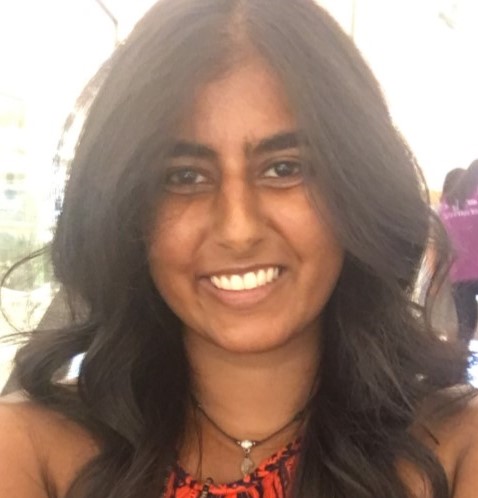
Marine Biologist / Scuba Diving Instructor
Higher Education Subject and University:
BSc Zoology - University of Roehampton.
MSc Forensic Anthropology and Archaeology- Cranfield University.
Current Job:
Marine Biologist / Scuba Diving Instructor
Brief Career History:
After completing my BSc and MSc, I was working in retail applying everywhere and anywhere to get started in my career. It took a lot of volunteering and hard work but then,
I was lucky enough in 2019 to get an Internship in Seychelles working and collecting data on fish species on the reefs surrounding the islands. From this Internship, I was able to further my Scuba diving skills with another internship in Thailand. This where I completed my Divemaster training to be able to take customers out into the water and to show and teach them about the underwater world and its inhabitants. From here my travels and work opportunities possibilities opened up. I was able to travel across Asia working and living in some amazing destinations.
I ended up heading back to Thailand to work and complete my Scuba Instructor Course and settling on one of the smaller islands. I am not only using diving to pursue my marine biology career, I am also set to complete my technical diving training to work as a marine archaeologist and recovery diver. I am also in the first stages of working towards my PhD, which combines my BSc and MSc. I still have plans and goals to get into new areas and goals in my career.
What do you love about your job?
I love that it is not a typical 9-5 job. My day can start at 4am on a boat in the middle of the ocean or I am starting work at midday getting prepared for night dives. To “classroom” work, which is usually on the beach and that may be a 9-5 day. It is a job that keeps me on my toes, no day is ever the same, it’s challenging and I am always learning.
I never wanted to teach, but honestly, it is one of the best things about the job. Not only do I get to share my passions and incorporate my other passions (like archaeology and rescue). Nevertheless, it has increased my confidence and public speaking skills a lot and developed my Leaderships skills. Not only do I loving my job because it has helped me, but the joy in students eyes, when they persevere and are able to get over the initial fear of the underwater world and the BIG fish. Teaching them about different species behaviour and how to conduct themselves in the water, they are a different diver and then most of the time they help with citizen science to help collect data, it’s a rewarding experience.
Another thing is being able to live and travel in some amazing places, from Seychelles to Thailand and even ended up staying in Japan and Bali for a while. I am also able to meet so many different people from all walks of life and learn from them and also make some amazing connections that have helped me further my career.
What three pieces of advice would you give someone thinking of a career as Marine Bilogist/Scuba Diving Instructor:
- You can never do too much volunteering projects. Get into as many as you can whether it is looking more as the Biology side or conservation side. It will help you learn different skills and knowledge, which will always help you in the future.
- Don't be afraid to try something new. There are many different routes to getting into this field. I just used my love of scuba diving to get it started.
- Communication is key. You need to talk and liaise with different partners and make as many connections as you can, because they can help you get on track to where you want to go.
How did St Benedict’s help you into your present role?
It was the opportunities that the school gave me and the positive values and work ethic, and 100% the teachers. I can still name everyone who spent that extra time to help me get to where I am.
Favourite memory from your time at St Benedict’s?
The Sixth form Cuba trip. It is where I first started Scuba Diving and found my passion of the underwater world.
Three words to sum up an average working day:
Unique, Rewarding and Educational
PR Talent Acquisition Executive

PR Talent Acquisition Executive
Higher Education Subject and University:
Events Management at the University of Greenwich and Level 5 CIPD Diploma in Human Resources with ICS Learn
Current Job:
PR Talent Acquisition Executive
Brief Career History:
While studying at the University of Greenwich I worked part time as a Party Host at Hollywood Bowl. I was promoted to Team Leader in 2016 and after graduating University in 2017 I enrolled in the Assistant Manager in Training Programme and moved to the flagship Hollywood Bowl at the O2 Arena. In 2019 I moved into a new role with Hollywood Bowl Intu Lakeside where I became a People and Payroll Manager dealing with all things Recruitment and HR. While I was furloughed for a year during 2020 I gained my Level 5 CIPD Diploma in Human Resources and in 2021 I began my knew role with Hill + Knowlton Strategies as a Talent Acquisition Executive.
What do you love about your job?
Being able to offer someone his or her dream job is the best feeling! I also work on a lot of Diversity, Equity, and Inclusion projects. This involves working with recruitment agencies and charities who help put disadvantaged people in Public Relations positions, which is extremely rewarding.
What three pieces of advice would you give someone thinking of a career in PR Talent Acquisition:
- Linkedin! Everyone should have an account on Linkedin. It’s a great place to connect with Friends, colleagues, Future employers as well as find and apply for jobs.
- Gain as much work experience as possible. Even if it is not directly related to the career you want to go into or if you’re not sure what you want to do. You will gain transferrable skills that could set you apart from other candidates.
- Be confident and be yourself! Almost all of the work in HR and Recruitment involves people. You will need to be confident in communicating with everyone. Even if they are the CEO.
How did St Benedict’s help you into your present role?
I was always encouraged and supported by all the teachers. I was given great advice on what A Levels I should take, which helped me massively when applying for university.
Favourite memory from your time at St Benedict’s?
The trips! La Fosca, Venice, skiing in Austria (even though I ended up on crutches on the 2nd day).
Three words to sum up an average working day:
Busy, Rewarding and Fun
Policy Advisor/Project Delivery Lead Ministry of Housing, Communities and Local Government
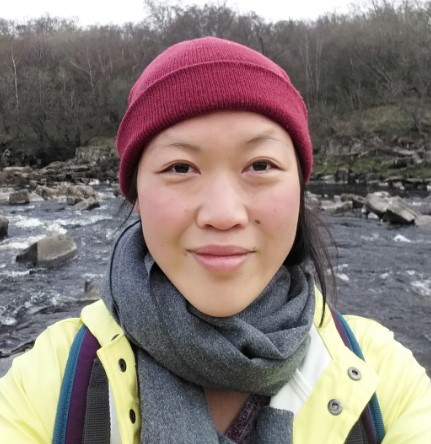
Policy Advisor and Project Delivery Lead at Ministry of Housing, Communities and Local Government.
Higher Education Subject and University:
Chinese & Spanish, University of Leeds.
Current Job:
Policy Advisor and Project Delivery Lead at Ministry of Housing, Communities and Local Government.
Brief Career History:
After graduating from University of Leeds, I moved back home and worked as a Learning Support Assistant at the WS College for a few months before moving on to become a Senior Campaign Manager at an education fundraising consultancy. Whilst I learnt a lot there, it really wasn't a healthy or suitable environment to be working in so after almost 2 years, I quit and took some time out to travel and recoup my energy. Following that, I moved to Bristol and, after doing a number of temporary jobs including at the NHS and various health trusts, I moved into the Civil Service in 2017 and have worked my way up. I believe that I'm a lifer there now but who knows, anything could change.
What do you love about your job?
I love the flexibility, the home-life balance and the emphasis that Senior Management and Directors have on staff wellbeing. The Department itself is very friendly and welcoming, and I am exposed to Ministers and a lot of cross-cutting work. The environment can be very fast-paced and regularly subject to change, which is both exciting and challenging.
What three pieces of advice would you give someone thinking of a career as Project Delivery Lead:
- Organise and manage your time well so that you can be prepared for unexpected, last-minute changes.
- Hone your conversational and communication skills. These are key for managing. stakeholder relationships and will do you a world of favours if a project isn't going well.
- Learn to do things in an Agile way; regularly reviewing stages, scoping lessons learned and temperature checking that everyone involved in the project is playing their part, performing well and is happy.
How did St Benedict’s help you into your present role?
To be brutally honest, it hasn't really. But I do look back fondly on my time there and gained a lot from my A-level years, particularly learning sociology with Mr Gingell.
Favourite memory from your time at St Benedict’s?
My last ever exam! Needless to say, I went out and celebrate that evening!
Three words to sum up an average working day:
Relaxed, varied, challenging.
Chartered Process Engineer, Stantec UK Ltd
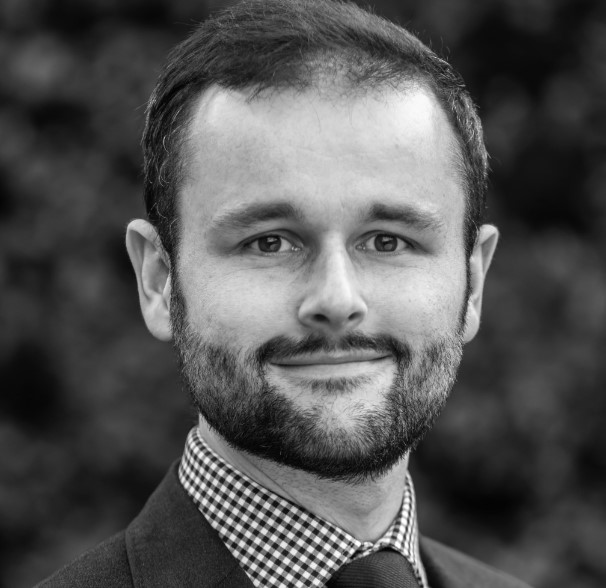
Chartered Process Engineer, Stantec UK Ltd
Higher Education Subject and University:
MEng Chemical Engineering with Business Management (1st Class Hons.), University of Birmingham.
Current Job:
Chartered Process Engineer, Stantec UK Ltd.
Brief Career History:
Having completed a three-month undergraduate placement with Stantec (then MWH) in 2015, I secured a full time role with the business upon my graduation in Summer 2016 and relocated to Edinburgh. I worked as a graduate process engineer in Edinburgh for two years before securing a promotion to process engineer and relocating to Brighton; I have since obtained Chartered Engineer status with the Institution of Chemical Engineers (IChemE) and moved into my current role as a chartered process engineer. I have worked with several water companies across England and Scotland, gaining a breadth of experience in water and wastewater treatment, with past projects focused on regional treatment strategies, process optimisation and regulatory compliance. I am currently working with Southern Water designing a desalination plant to supply water to Hampshire during drought.
What do you love about your job?
It’s rewarding to know that my work helps to protect water courses and drinking water supplies for communities in the UK. As a consultant, I have a fast paced and varied role working with a range of clients to help them identify problems and develop optimal solutions; this includes a mixture of field and office-based working. Stantec is a global consultancy, which has enabled me to develop in international network of contacts whose expertise/perspectives I can draw upon in my day-to-day work.
What three pieces of advice would you give someone thinking of a career as Chemical Engineer:
- Seeking work experience at each stage in your education is critical to distinguish you from other candidates (for university admissions and graduate jobs) and gives you something other than academic experience to discuss during interviews. This work experience might not all align with your career aspirations (e.g. I worked at Waitrose during sixth form) but still demonstrates relevant skills (team working, customer service, etc.) and could provide some useful anecdotes for interviews (e.g. conflict resolution or time management). Week-long placements for students during school holidays are commonly available with engineering consultancies (but rarely advertised); find out which companies have offices local to you and get in contact. Volunteering and fundraising for charities is another area where you can develop complimentary skills whilst making a positive impact on society.
- Self-directed learning in relation to your career of choice is an important extracurricular activity. Showing an understanding of how the industry is structured and the threats/opportunities it faces will be a distinguishing factor which will really impress interviewers. There are several professional institutions active in the Water Industry regularly hosting free webinars (accessible to non-members), examples being the Institution of Chemical Engineering (IChemE), the Chartered Institute of Water and Environmental Managers (CIWEM), and the International Water Association (IWA). The Open University is one example of an academic institution offering relevant free e-learning courses.
- Always make time for your hobbies. Setting aside time to do the things you enjoy is important for your mental health, helping you be at your best when you’re working or studying. Universities and employers also want to see that you are a well-rounded person and interests/commitments outside of work/academia help demonstrate this; some hobbies, such as team sports, also demonstrate complimentary skills for employers (e.g. team working).
How did St Benedict’s help you into your present role?
The dedicated and hard-working teachers at St Benedict’s sharing their enthusiasm for the subject matter was crucial in making the curriculum engaging and accessible. Certain teachers also went above and beyond in their efforts to help me succeed; for example, being given the opportunity to participate in the Engineering Education Scheme with the Engineering Development Trust, gaining experience of an engineering project with an industrial sponsor.
Favourite memory from your time at St Benedict’s?
Lunchtime in the sixth form common room with my friends.
Three words to sum up an average working day:
Analytical, Collaborative, Spreadsheets.
Data Visualisation Engineer, Expedia Group
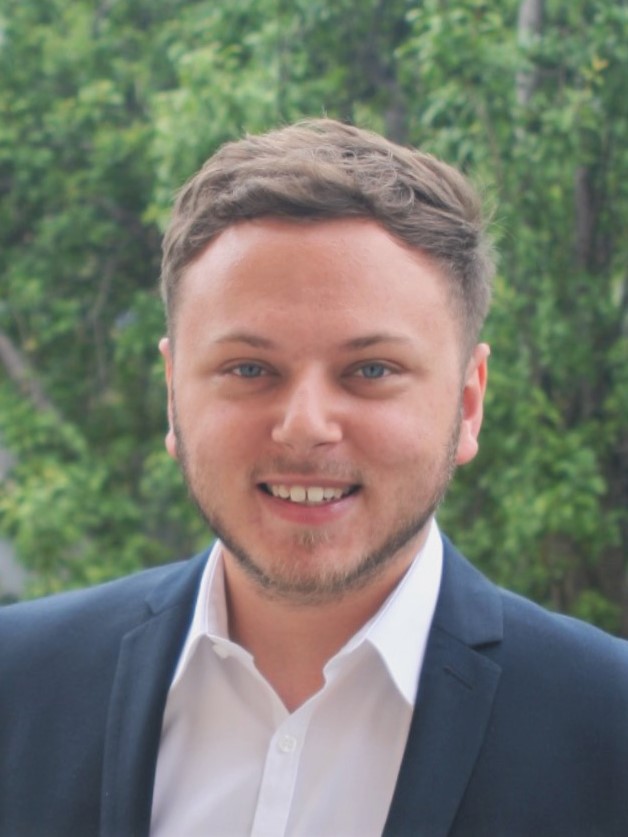
Data Visualisation Engineer, Expedia Group
Higher Education Subject and University:
BSc Sport & Exercise Science, University of Bath
Current Job:
Data Visualisation Engineer, Expedia Group
Brief Career History:
My first exposure to analytics was during my degree where I undertook a placement year at Stoke City FC, where I monitored player physiology and performance. I then went to work with Dulux and worked as a summer intern in a commercial role focusing on analytics and reporting. Post University I joined Expedia Group and have been working within the product analytics function ever since. Specifically, I build data visualisation products, which aid the business to see and understand our complex data in a simple and meaningful way, so that actionable insights can be obtained.
What do you love about your job?
Working as a data visualisation engineer encompasses many other roles that are similar such as data science, data engineering, data analytics, product management, UX / UI design, web development and of course, data visualisation. This in itself gives me lots of exposure to different skills within the data industry and is something I enjoy the most about my role. The industry itself is on an acceleration path, with all companies trying to leverage their data to make more money, retain more customers etc. so it is an exciting area to be in at the moment.
What three pieces of advice would you give someone thinking of a career in Data:
- Working with data, amongst other digital skills are very in-demand. You will of course need to have good quantitative skills, but you do not necessarily need to be an expert in Maths. You may enjoy more research-based subjects, such as Science, which will come in handy.
- Become an expert in Excel. Most analysts start in Excel and it can be a great place to learn to work with data before moving onto more sophisticated tools like R and Python.
- Be curious – working with data, you need to often interrogate and solve complex problems with simple solutions.
How did St Benedict’s help you into your present role?
The high standards held at St Benedict’s will certainly aid you later on in life, at University and beginning you career. The teachers were always encouraging and genuinely wanted you to succeed with both GCSEs and A levels to go on to do what you want to do at University and beyond.
Favourite memory from your time at St Benedict’s?
It has to be the Spanish trip really… as well as being involved in the sports teams!
Three words to sum up an average working day:
Analytical, Challenging, Exciting
Head of Children & Young People at Sport England
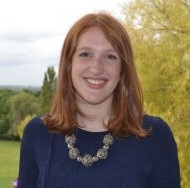
Head of Children & Young People at Sport England
Higher Education Subject and University:
BA (Hons) History, University of Cambridge.
Current Job:
Head of Children & Young People at Sport England.
Brief Career History:
While at university, I completed a summer internship at Greene King as a communications and public affairs assistant. This experience confirmed to me that I wanted to work in public affairs or the public sector – I was really interested in policy and wanted to be part of influencing it going forward.
After graduation, I applied for a range of jobs in the civil service and secured a graduate internship at the Department for Education in London. I was allocated to the Ministerial Private Office, providing direct support to the Special Advisors to the Secretary of State. It was a very demanding job, but I learnt a lot about how government works and gained experience working very closely with top ministers.
I then moved to the Department for Digital, Culture, Media and Sport to co-lead a government review into the Heritage Lottery Fund. I transferred to the Sport team as a policy manager. My role was to advise ministers on the government’s response to the allegations of non-recent abuse in football, as well as the number of welfare scandals emerging in elite sport. I also contributed to Brexit negotiations, wrote ministerial speeches, and supported preparations for the ICC Cricket World Cup 2019.
I’m now working at Sport England, as Head of Children and Young People. I oversee National Lottery investments designed to help young people have a positive experience of PE, sport and physical activity. I spend most of my time managing a team that are delivering programmes and projects, and working with organisations in the sports sector to come up with ideas to help boost participation among young people.
What do you love about your job?
I love working to try and make a genuine difference to people’s lives. When I go out and visit projects we’ve funded and see the impact it’s made it really brings home the importance of what we do. Although the fact I work at Sport England does make me feel guilty if I skip the gym!
What three pieces of advice would you give someone thinking of a career in Project Management in Sport:
- Try and get some work experience while you are studying, and/or talk to lots of people about career options you are interested in – not only does it help you develop experience to talk about in interviews, it also helps you decide whether it’s right for you or not. After talking to a few lawyers at university, I realised it definitely wasn’t for me!
- Remember that career paths aren’t always linear – I had no intention of pursuing a career in sport, but saw an opportunity and took it! The transferable skills and experience I built through my studies, and in the civil service, continue to help me every day.
- Sport is a huge industry, and so your options are not just limited to being a coach, personal trainer or athlete. Sports organisations are businesses, so need finance officers, marketing specialists, researchers, analysts, scientists, programme managers, fundraisers, and so much more.
How did St Benedict’s help you into your present role?
The support provided by St Benedict’s when I was applying to universities was brilliant. I was very nervous about applying to Cambridge – no one in my family had ever been to university before and I thought it wasn’t a place for ‘someone like me.’ I remember teachers telling me to go for it and lending me their own personal books to help me prepare for the interview.
Favourite memory from your time at St Benedict’s?
Getting to play lots of different sports at lunchtime and after school.
Three words to sum up an average working day:
Collaboration; Project management; Zoom!
Project Architect
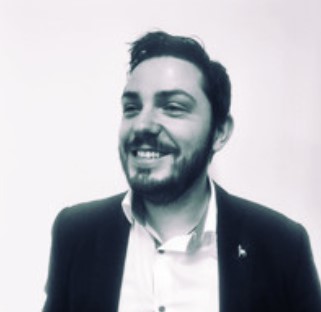
Project Architect at Lawray Architects
Higher Education Subject and University:
BA(Hons) Architecture from The Kent School of Architecture and Planning, The University of Kent.
Architecture Part 2, MArch, from The School of Design, The University of Greenwich.
Professional Practice Architecture, PgDip ARB/RIBA Part 3 Exemption, from Kingston University.
Current Job:
Project Architect at Lawray Architects.
Brief Career History:
Following graduation from the University of Kent, into a recession, jobs were hard to come by. I eventually got a position through Gumtree for a Restaurant designer in Swansea, so moved across the country to give it a go. I found myself designing restaurants in Dubai and the Middle East.
I was then lucky enough to get a position within an Architecture Studio in Canterbury, after sending the director a message on Twitter. I stayed with this company through my Master’s and worked in both Canterbury and London offices on a number of large scale projects, gaining experience vital to my career progression.
I completed my Part 3 Exemption and registered as an Architect, whilst working at a firm in Guildford before moving to my current role at Lawray in London. I am currently a Project Architect managing an internal design team delivering a range of projects, from Housing, Schools, Commercial and offices with Contract values up to £30million from start to completion.
What do you love about your job?
The challenge, Architecture is not about just designing a scheme for your clients’ needs but it’s about managing people, the process, and expectations. Every day there is a different problem to solve and challenge to overcome. One day I might be developing a concept scheme for a multi residential development, creatively reviewing the design, façade and envisaging how each space would work. Another day I may be completing technical information for Local Authority submission and sign off or Walking around the construction site, assisting the Contractor with issues, connection details and ensuring the clients visions comes to life.
I guess it is this variety that keeps my job interesting on a day-to-day level, but the really exciting part is seeing your work realised. I can be working on a project for multiple months even years then to see it come to fruition and walk around the finished scheme knowing that I had drawn that or assisted in ensuring the proposal was completed, that brings a large sense of satisfaction.
What three pieces of advice would you give someone thinking of a career as an Architect:
- Think outside of the box, first and foremost Architecture is about being creative problem solving, forward thinking, and innovative.
- You learn early on that everyone has an opinion, and it is not always positive. You must quickly learn when to take on-board well-intentioned criticisms and when to stand up for yourself. You cannot let the negative comments put you down and need to believe in yourself, and what you are achieving. There will always be issues to resolve, but there is always a solution.
- Learn from your surroundings and everyone around you. The best piece of advice I can give is to be a sponge, Architecture is a career of continuous learning, research, and professional development.
How did St Benedict’s help you into your present role?
I never really knew which career I wanted to progress into, and I fell into Architecture, as a profession which explored my enjoyment of Art but was balanced by my organisation and articulate thinking which have helped my career progression. Therefore, I cannot thank the teachers enough for pushing me. St Benedict’s taught me how to ask questions, without accepting things at face value. They taught me critical thinking and gave me the mindset to review all sides and possibilities, to explore every option when presented with a challenge.
Favourite memory from your time at St Benedict’s?
My favourite lesson was art, even the exam was a few days of exploring and pushing the boundaries of what was acceptable. I studied Abstract Expressionism and developed a whole process of Art through actions and emotions, particularly the effect when sprayed through a super soaker.
Three words to sum up an average working day:
Challenging, Collaboration, Creative
Retail & Press Manager / Freelance Stylist
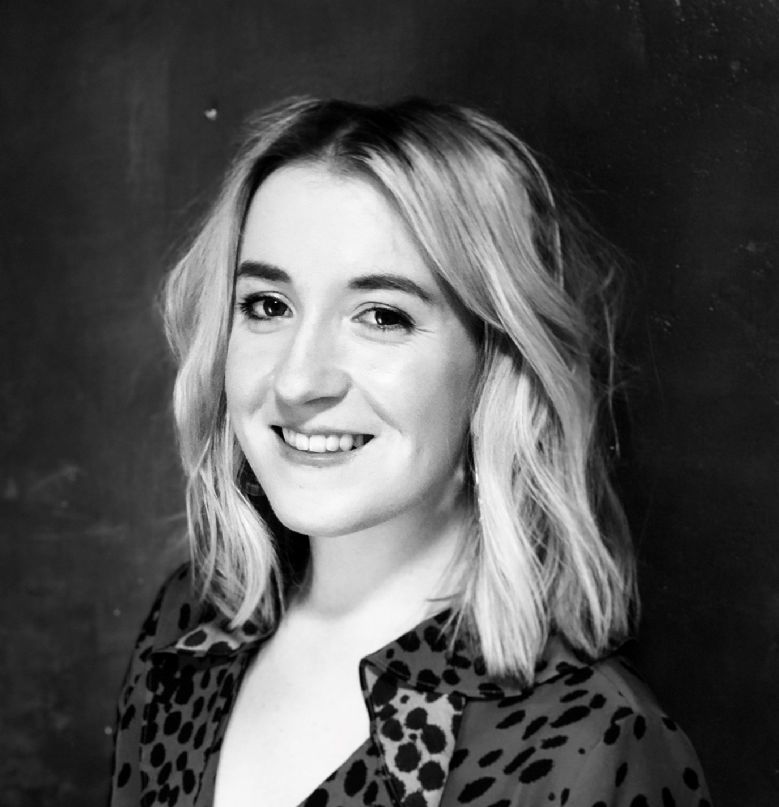
Retail & Press Manager / Freelance Stylist
Higher Education Subject and University:
Bsc Art and Design - Birmingham City University
Current Job:
Retail and Press Manager and Freelance Stylist
Brief Career History:
Throughout university, I completed several internships and placements within the fashion industry, including London Fashion Week.
After graduating with a first class honour degree, I pursued a career in apparel styling, my first role working as a visual merchandiser for an independent boutique. While working within this role, not only did I learn how to appeal to a greater audience but it allowed me to learn to drive, save money and freelance to add experience within the sector. In 2019, I moved to London, accepting the role of Junior Stylist for evening and bridalwear designer, Charlie Brear. I have been at CB for over 2 years now and as a result my role has developed alongside my skills and experience. While working full time with CB, I also freelance as a styling assistant. It is a lot of work but in the last year, it has really paid off and has led me to focus on my next steps for my career.
What do you love about your job?
Every day is different, whether it be styling the perfect bridal look for one of our clients at CB, to assisting on photoshoots for music videos or publications like Vogue. Like I said, it is fast-paced and a lot of work, but I wouldn't change it.
What three pieces of advice would you give someone thinking of a career as a Freelancer:
- Too much experience is never enough, there is always something else you can learn or teach yourself.
- Know your worth! Within the fashion industry, there are companies who will try their luck and get you to work for free. Whether it's your first placement or internship, they should at least be paying for your transport and lunch and overtime and experience gained, you can start to work out your daily rate.
- Use every contact and be kind to everyone you meet - you never know who they will turn out to be. I have landed styling jobs in the most unique of places.
How did St Benedict’s help you into your present role?
The Art department was a constant help in understanding which direction I wished to take my work and understand that the creative sector was a secure industry to go into.
Favourite memory from your time at St Benedict’s?
The friends - they will come and go and then do a full circle.
Three words to sum up an average working day:
Is it Paid? (a question you have to get used to when freelancing) but in all honesty, Fast Paced, Exciting, Demanding
Theatre Director
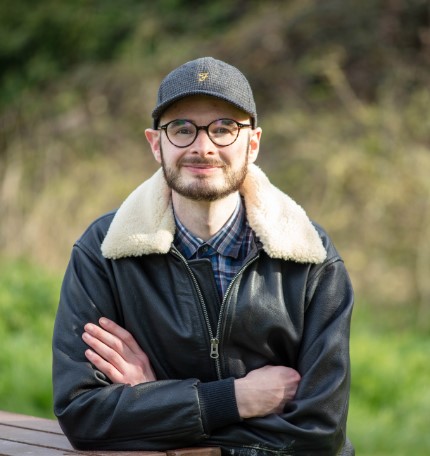
Theatre Director
Higher Education Subject and University:
BA (Hons) Drama and Theatre Practice, University of Hull
Current Job:
Theatre Director
Brief Career History:
When leaving St Benedict’s I knew I wanted to continue to be a part of the performing arts, so I committed all my focus into that and took up a BTEC National Diploma in Performing Arts at Cambridge Regional College, instead of taking A Levels. Subsequently I got a place at the University of Hull on the Drama and Theatre Practice degree programme, which gave me the opportunity not just to study drama academically but to receive practical training in theatre – much like going to medical school. It was during my degree I discovered my ability and appetite to direct and it is where I directed my first full-length productions. Since graduating, I have continued to direct across a variety of different theatres, predominately in London. A true highlight was to direct at the Theatre Royal Haymarket in the heart of London’s West End.
More recently, I have been selected as one of 6 directors from across the country for The 24 Hour Plays UK at the Lawrence Batley Theatre, Huddersfield
What do you love about your job?
There are many things I love about my job. Storytelling is the job and who doesn’t like a good story? I love how directing and theatre-making is a truly collaborative team-effort. I love how you get to work alongside with incredibly skilled, talented, passionate, and often nice people such as designers, technicians, and actors. Above all the performing arts sector is fuelled by passionate people. We unapologetically love what we do and we utterly believe in the art form and what it can do for everyone. What more could you want in a job?
What three pieces of advice would you give someone thinking of a career as a Theatre Director:
- See as much theatre as possible (live screenings/streamings do count!) and read as many scripts as you can (if you’re interested in text-based theatre). That is partly how you learn and it is where you reaffirm your passion, knowledge, and taste for live storytelling. Theatre does not have to be expensive. I believe that is somewhat of a misconception. There are many fantastic discounts for those under 25, including FREE ticket giveaways.
- Get involved with as much theatre as you can. Join your local drama group/youth theatre group – perform and seek out the opportunity to try other roles like lighting, set design/construction, costume, sound, stage management. Drama is based on action (doing, not saying). You learn and develop your career in theatre the most when on the job. You learn how to get most out of your team and make the best shows possible, when knowing what all the other jobs are and how they function to make a show. The Theatre Royal Bury St Edmunds is fantastic place to start!
- Keep going! The performing arts is truly a long game and you will be rejected more gigs than being accepted for gigs – that is very much the norm for everyone, regardless of how successful or famous you are. There is no such thing as an overnight success, it does take time. Be patient – life’s a journey, so enjoy the ride!
How did St Benedict’s help you into your present role?
Thankfully St Benedict’s very much appreciated the arts and often had plenty of extra-curricular activity including the choirs, plays, theatre visits, etc. Those experiences were key in developing my insight, aptitude, and passion for the performing arts. St Benedict’s also facilitated GCSE Drama as an option, which served as a good introduction to studying drama. This also included visiting theatres and watching excellent shows. Above all the school and its faculty were nothing but encouraging in my pursuit of the performing arts as a career. If it wasn’t for that I’m not sure if I would have continued that journey. You need your allies, the people who champion and advocate for you – to cheer you along the marathon.
Favourite memory from your time at St Benedict’s?
So many to pick from! A true highlight every year was the big fundraising week that the school ran before the Easter holidays. It was brilliant time when the school truly came together, raised money for good causes and had fun whilst doing it! The big show-stopping events were the talent show and quiz show. They were very enjoyable and a big laugh, as well as being a brilliant reminder of the talent and skills present in the school. I believe some clips of them are still available on YouTube.
Three words to sum up an average working day:
Fun, Challenging, Variable
Policy Designer, Department of Education
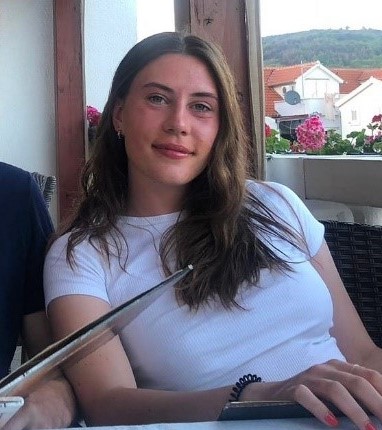
Policy Designer, Department of Education
Higher Education Subject and University:
Bachelor of Science (BSc) Politics, London School of Economics
Current Job:
Policy Designer, Department for Education, UK Civil Service
Brief Career History:
Policy Designer, Department for Education, UK Civil Service, including working on:
A digital service for applications to become new teachers.
A covid response programme, to deliver laptops and tablets to schools in England to support remote education during covid-19.
Digital, Data and Technology Fast Stream, UK Civil Service, including work in the Home Office, the Department for International Trade and High Speed Two (HS2).
I also worked part-time as a pub manager whilst at University.
What do you love about your job?
I love being able to work with a range of diverse people, learning from them and building my skills. I also love that my work allows me to speak to schools, teachers, and pupils about their experience with remote education and the support they need from the Government.
What three pieces of advice would you give someone thinking of a career as a Civil Servant:
- Think about what sort of work you would like to do. For example, working with numbers doing data analysis, in IT, advising Ministers and Government. There are a range of roles in the Civil Service, so you can think about what you find interesting and probably find a role that suits you!
- Do some work experience with your local council, local Members of Parliament – lots of people in the community are happy to offer work experience, which can help you to understand how civil servants work with Council’s and MPs.
- Be yourself – you will do your best work at school and when you begin working by being yourself and recognising the value that your personality and thoughts will bring to a team!
How did St Benedict’s help you into your present role?
St Benedict’s helped me to think properly about which University I should apply for and what sort of subject I wanted to study. I was able to know what GCSEs and A Levels I needed to do the things I was interested in, this really helped me set a goal and revise until I got there!
Favourite memory from your time at St Benedict’s?
Meeting friends I still speak to now!
Three words to sum up an average working day:
Emails, meetings, and briefing.
Foundation Doctor, Royal Surrey County Hospitals
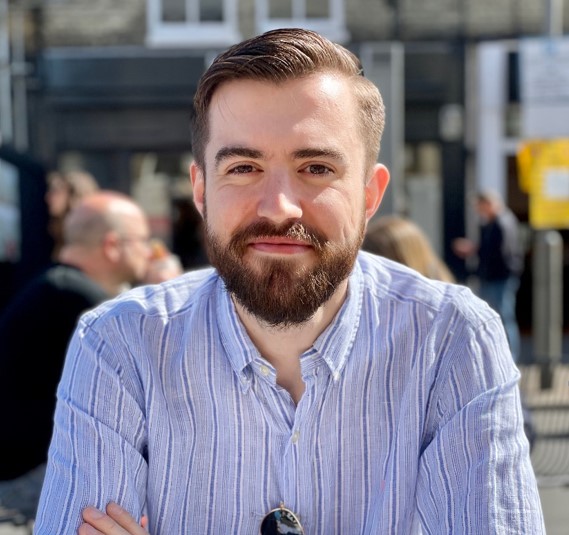
Foundation Doctor
Higher Education Subject and University:
University of Bristol, BSc (Hons) Chemistry (2012-2015)
University of Southampton, MBBS (2016-2020)
Current Job:
Foundation Doctor, Royal Surrey County Hospitals
Brief Career History:
Cambridge University Hospitals, Healthcare Assistant (2015-2020)
Royal Surrey County Hospitals, Foundation Year 1 Doctor (2020 – 2021)
4 month posts in Respiratory Medicine, Acute Internal Medicine, Hepato-Pancreatico-Biliary Surgery, Hepatology & Gastroenterology
St George’s Hospital, Tooting, Foundation Year 2 Doctor (2021 – 2022)
4 Month posts in General Practice, Emergency Medicine, Gentito-urinary Medicine.
I left St Benedict’s in 2012, and studied chemistry at the University of Bristol. During that period, I volunteered with the National Autistic Society, and also at the Bristol Royal Infirmary. I subsequently decided to apply to study medicine as a post-graduate, and worked as a healthcare assistant at Addenbrooke’s hospital in Cambridge. I worked there for a year full time, and moved down to Southampton to read medicine. I continued working ad-hoc at Addenbrookes, and also Southampton General Hospital while studying. Once qualified, I started working in Guildford, and will move to St Georges, Tooting, in August 2021.
What do you love about your job?
I get to see a huge range of people from all sorts of backgrounds; I get to see them at their most vulnerable and work with an amazing team of other doctors, nurses, and other health professionals to look after our patients, and help them get better. I am constantly learning, not only from my colleagues but also our patients. As a trainee, I change departments and specialities every 4 months, so there is always something to learn. I love that no two days are similar, and that there is constant variety in what I see and what I do, day to day.
What three pieces of advice would you give someone thinking of a career as a Doctor:
- You don’t need to decide now. You can study medicine as a post-graduate, and lots of people do. I didn’t think about medicine until I was nearly at the end of my first degree. If you know now you want to do it, go for it. If you’re not sure, there’s no harm in taking time out!
- Try and get voluntary experience. It helps you make an informed choice before you commit to studying for 4+ years, and it teaches you skills that will be really helpful when it comes to studying. You don’t want to find out at the end of it that you hate working in hospitals! It also gives you something to talk about university interviews.
- Do it! It’s a great job, and once you’ve qualified, the possibilities are endless, in the UK and abroad. I have friends who have worked in Australia and New Zealand, and Canada; some of them are now training in hospitals as physicians and surgeons, others are training in everywhere from government microbiology labs to psychiatrists in central London. The options are varied, and there really is something for everyone.
How did St Benedict’s help you into your present role?
St Benedict’s taught me the values of looking after and caring for other people, and these are at the core of medicine, and have shaped me into the person I am now.
I was lucky to have some inspirational teachers at school, who encouraged us to do our best, and were constantly pushing us to try harder. This motivation has stayed with me and allowed me to excel in my studies after leaving.
As we progressed through 6th form, there was an increasing amount of self-directed learning, another skills have has proved invaluable not only during higher education, but also in my career.
Favourite memory from your time at St Benedict’s?
A-Level Chemistry lessons with Mrs Berry + Mr Watts – they definitely inspired my choice to study chemistry at university and made me appreciate how fun it was… even if I went off-piste into medicine afterwards!
Three words to sum up an average working day:
Fulfilling, educational, varied
Student Success Advisor - Birmingham City University
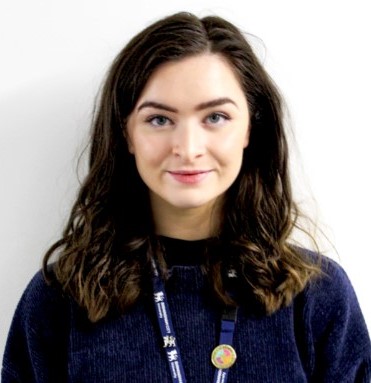
Student Success Advisor - Birmingham City University
Higher Education Subject and University:
Fine Arts, Birmingham City University.
Current Job:
Student Success Advisor - Birmingham City University
Brief Career History:
In 2018 after Graduating with a 2:1 in Fine art, I was unsure of where I wanted to go after University but I was determined to stay in Birmingham having such a positive experience I'd had there the previous 3 years. I first got a job at my University as part of the Graduate+ team under the educational development service, to promote and engage students with the Graduate+ extra-curricular award scheme. This award scheme is designed for students to map their unique journeys within University and give them the opportunity to be the best Graduates they can be. As Project officer, I presented to large groups of students promoting the award, provided admin support, working on marketing projects and develop the Graduate+ Social media platforms. I also worked as placement supervisor for our BCU first-year students who worked with the Graduate+ team under the Earn to Learn scheme.
After 11 months, in a fixed-term contract that was coming to a close, I became a Student Success Advisor for the Arts, Design and Media faculty at Birmingham City University. My role specifies overseeing the School of Art and The School of Fashion & Textiles where I work closely to enhance student experience and the student's voice, as well as offer one to one support. Currently, I am also undertaking a counselling training course in the hope that one day I will become a trained counsellor and continue my work in wellbeing for students.
What do you love about your job?
Giving students the support to get them through challenging times.
Watching students grow over the academic year and seeing the amazing work they produce.
Working in an arty environment - you always learn something new!
Not having to wear office attire - I am pretty much free to dress as colourfully as I like.
What three pieces of advice would you give someone thinking of a career in Student Support:
- Invest in counselling training, it not only makes you a better listener but also provides you with resilience to deal with difficult situations.
- Never stop looking for opportunities to be creative.
- Someone will always be there to support and guide you through your role whether that is a colleague or manager.
How did St Benedict’s help you into your present role?
Definitely showed me how to have a good work ethic and to never stop learning. I have to give a shout out to teachers such as Mr Gingell who always went that extra mile in learning the curriculum and beyond to get you those extra marks. It really is the more you know. I would also have to give a shout out to teachers such as Mrs Aldous and Mrs Williams who had so much kindness, patience, understanding and open-mindedness for all students.
It really taught me the values of these qualities and how to replicate them in my own work.
Favourite memory from your time at St Benedict’s?
School trips - honestly the best times of my life and with every trip I always made new friends, and of course Sixthform - a small and funny couple of years but I wouldn't change it for the world.
Three words to sum up an average working day:
Challenging, exciting, rewarding.
Barrister at 187 Fleet Street
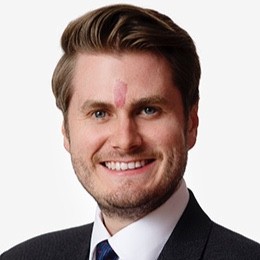
Barrister at 187 Fleet Street
Higher Education Subject and University:
Law, LLB(Hons), at the University of Sussex.
Current Job:
Barrister at 187 Fleet Street, The Chambers of Andrew Trollope QC and Richard Christie QC.
Brief Career History:
I left St Benedicts with a place to study law, but no real idea about what I wanted to do after university. While I was in sixth form, and for several years after, I served in Suffolk Constabulary as a Special Constable. While at University, I didn’t always love the academic side of law, but found my calling through mooting (a mock court competition, where each side makes legal submissions on a fictional appeal). After my second moot, I knew that I wanted a career as an advocate. After my degree, I took a masters degree in Criminal Law and Criminal Justice, again at Sussex, and did lots more mooting and other extra-curricular activities. 2 weeks after handing in my masters dissertation, I started on the Bar Course in London, with the help of a scholarship from Middle Temple.
After the Bar Course, I worked as a paralegal in two law firms in London, specialising in criminal defence work. On my third attempt applying for pupillage, I was privileged to have offers from two sets of chambers in London. I started pupillage in 2018, became a tenant in 2020, and have never looked back. I now specialise in all areas of criminal defence and prosecution, as well as professional regulatory work.
What do you love about your job?
Every case, every client, and every day is unique. As barristers, particularly in crime, we have the privilege of helping others, be they victims of crime, witnesses, or defendants, to tell their story in Court. I love the intellectual challenge of preparing and presenting each case, but most of all I love being able to use my skills to make a difference in each case.
What three pieces of advice would you give someone thinking of a career as a Barrister:
- Good academics don’t make a good barrister, but bad academics make it much harder to get through the door, however;
- Being a barrister is about a lot more than intellect. Live life, get as much experience of as much as you can while you are young. It will make you so much better at whatever you want to do, especially the Bar.
- Keep up your interests outside work and study. Be interested in things. It makes you interesting.
How did St Benedict’s help you into your present role?
Studying history and sociology under Mr Gingell at St Benedicts substantially shaped me in to the person I am today. Without Mr Gingell’s overwhelmingly positive influence, I would not have gone on to study law, or gone to the Bar.
Favourite memory from your time at St Benedict’s?
My experience at St Benedict’s is summed up by my memory of Mr Gingell cooking us lunch on our final day in upper sixth. It was a real ‘coming of age’ moment, the food was delicious, and Mr Gingell was an excellent role model.
Three words to sum up an average working day:
Everything can change.
Graduate Transport Planner
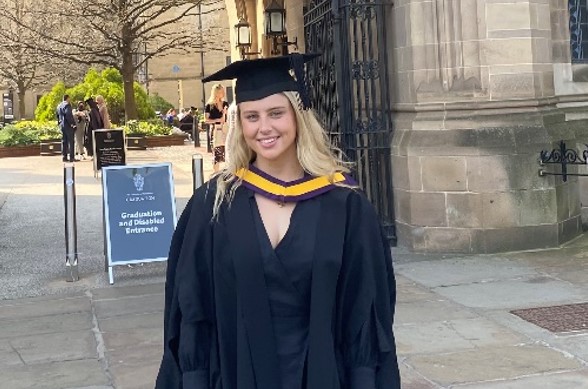
Graduate Transport Planner
Higher Education Subject and University:
BA Geography with a year abroad, Queen Mary University London.
MSc Urban Planning, University of Manchester.
Current Job:
Graduate Transport Planner
Brief Career History:
I graduated with a first-class degree in Geography in the height of the Covid-19 pandemic, therefore I was entering a tricky job market. After working as planning assistant during my summers at university, I knew I wanted to go on and study a master’s in planning. I graduated with an MSc in Planning in September 2021 and began my career working at Curtins an engineering consultancy in London. I work within their Transport Planning team and have enjoyed my first 6 months in the role getting used to working life. Being on a graduate program means I am constantly challenged with a wide variety of projects which has helped me to develop technical skills quickly.
What do you love about your job?
I love the variety of projects I work on as it keeps it varied and interesting. I also love working within the built environment because I can see directly how my job is having an impact to society and how cities run.
What three pieces of advice would you give someone thinking of a career in Urban Planning?
- Gain work experience – I emailed a variety of public and private planning consultancies to work with them over the summer and it allowed me to have a greater perspective of what a career in planning would look like.
- Talk with people in the industry – LinkedIn is a great platform to connect with people and gain advice.
- Keep up to date with planning in your area - look at new local plans and planning documents, or simply look around at the built environment and what’s changing.
How did St Benedict’s help you into your present role?
Captaining the school netball team gave me the confidence to work well in a team, something which is essential in my role.
My close group of friends which I formed at St. Benedict’s still support me in all aspects of my life now
Favourite memory from your time at St Benedict’s?
The Berlin history trip in year 10 was a personal highlight. Or the entire two years at sixth form.
Three words to sum up an average working day:
Teamwork, interesting and fun.
Pricing Analytics Specialist at TP ICAP

Pricing Analytics Specialist at TP ICAP
Higher Education Subject and University:
Master of Mathematics, University of Warwick
Current Job:
Pricing Analytics Specialist at TP ICAP
Brief Career History:
Quantitative Intern at Delta Capita (Jul 18 – Sep 18): During my penultimate year of university I got an internship in London. I joined a consultancy and worked with the Data Science team on market impact (how can we execute a large trade in the market without disrupting it?) and contagion risk modelling (if one bank collapsed, how does this affect other banks?).
I graduated with a 1st class Masters in Mathematics from the University of Warwick (Jun 19). I considered further study after publishing some of my university work, but decided I had enough of the student lifestyle and decided to move to London.
Quantitative Consultant at Delta Capita (Sep 19 – Aug 20): I luckily got a full time offer following my internship. I helped on various roles on projects within banking and finance.
Pricing Analytics Specialist at TP ICAP (Sep 20 – Current): I moved to a large broking firm (executing trades between counterparties). I work within the Pricing team building models using Python to run scenario analysis on various asset classes such as FX and rates products.
What do you love about your job?
This role allows me to use the skills I gained during my education in the real world. I feel that I deliver value-add results to my company which can be seen with process improvements within my department; it is good to see the results of your work!
What three pieces of advice would you give someone thinking of a career in Data and Analytics:
- Get work experience: in a difficult graduate market having experience is crucial. You don’t need to get that dream job straight out of university, any work experience is good experience.
- Learn to code: this is how you turn mathematical ideas and models into reality!
- Learn how to explain your ideas in a simple way: key decision makers are usually non-technical; if they can’t understand what you have produced then they won’t be able to action it.
How did St Benedict’s help you into your present role?
I had some excellent teachers who helped support me and develop my love for mathematics, which is crucial in my day job
Favourite memory from your time at St Benedict’s?
The annual talent show!
Three words to sum up an average working day:
Varied, challenging, rewarding.
Managing Director - ROX Promotions (Events Management)
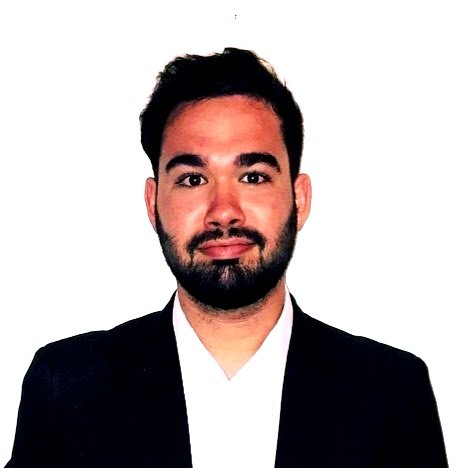
Managing Director - Rox Promotions
Higher Education Subject and University:
BA (Hons) Education, University of Brighton
Current Job:
Managing Director at ROX Promotions
Brief Career History:
I stumbled upon the passion for events during my second year when I managed to pick up a part-time job handing out flyers for a club in Brighton, I found out that you could make commission with the guests you bring to an event and I put in the extra work to be in the position of making a full time wage on a part-time job, so I dropped out of University when I was at the end of my 2nd year of my teaching degree to launch my first company ‘King of Clubs’.
We ran King of clubs for 2 and a half years at clubs around Brighton, I remember my first event had about 250 people and I was elated. By the time I sold King of Clubs we were running 5000 person events.
I then was headhunted by ROX where I worked my way up the company from a general manager to managing director. I now run events up to 22,000 people!
What do you love about your job?
I love giving my staff who are students the opportunity to express themselves. I also love the challenge and the journey of coming up with an idea and turning it into an awesome event!
What three pieces of advice would you give someone thinking of a career in Events Management:
- Failure is a part of the journey.
- Take the time and care with your audience
- Timing is everything
How did St Benedict’s help you into your present role?
St Benedict’s always gave me the opportunity to express myself. Along with this, the core values of the school and continued support from the staff helped me to learn how to treat others.
Favourite memory from your time at St Benedict’s?
I have SO many - I would say that my main one was getting to the Suffolk County Cup finals in our football team, playing against players who are now professional and going to HUGE schools around the county in our little mini bus and beating those teams, a TRUE underdog story.
Three words to sum up an average working day:
Sociable, Creative, Influential
Senior Planning Officer (Energy)
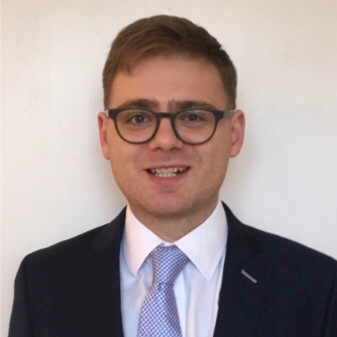
Senior Planning Officer (Energy)
Higher Education Subject and University:
BA Open degree; Open University
PgDip Politics philosophy and economics; University of York
Currently studying MSc Town planning; Anglia Ruskin University
Current Job:
Senior Planning Officer (Energy)
Brief Career History:
While studying part time at the Open University I took an internship in the Policy Team at West Suffolk Council where I got a taste for working on strategic issues in the public sector. After studying for a Postgraduate Diploma in PPE at York I took a job as a Research Analyst at Cambridgeshire County Council, where I was involved in providing statistics and research to inform decision-making. In particular I spent a lot of time gathering information on housing to inform planning policy.
The more I found out about the world of planning, the more interested I became, so I took a job as a planner at Suffolk County Council. Now I am a Senior Planning Officer and I work on responding to planning applications for major energy infrastructure projects, of which there are a huge number proposed in Suffolk including offshore wind farms, solar farms, new transmission lines and even a new nuclear power station on the coast.
What do you love about your job?
I love the fact that my job has a very tangible impact on the environment. The negotiations I have with developers, the decisions I take and the recommendations I make have a direct impact on how and where things are built.
What three pieces of advice would you give someone thinking of a career in planning:
- You can choose from a variety of undergraduate degree subjects. To become chartered you will need to have a postgraduate planning qualification anyway, so you don’t necessarily need a planning degree at undergraduate level.
- Don’t pay for your own planning masters! Many employers will offer to put you through a degree apprenticeship or otherwise financially support your planning studies, so many planners work while studying for their postgraduate qualification.
- Talk to planners about their jobs. There are many different types of planners, some are all-rounders but there are a huge variety of specialisms including transport, housing and my specialism, energy infrastructure. Some people develop planning policy while others make decisions on specific proposals. Talk to planners about what they do because there is probably a niche that you will be interested in
How did St Benedict’s help you into your present role?
When I was at school, I had not even heard of planning as a career! What really helped was the confidence instilled in me by my teachers, so I was not afraid to try something new.
Favourite memory from your time at St Benedict’s?
I had a lot of fun in sixth form and really enjoyed the freedom to take charge of my own learning.
Three words to sum up an average working day:
Autonomy, Satisfaction, Creativity
